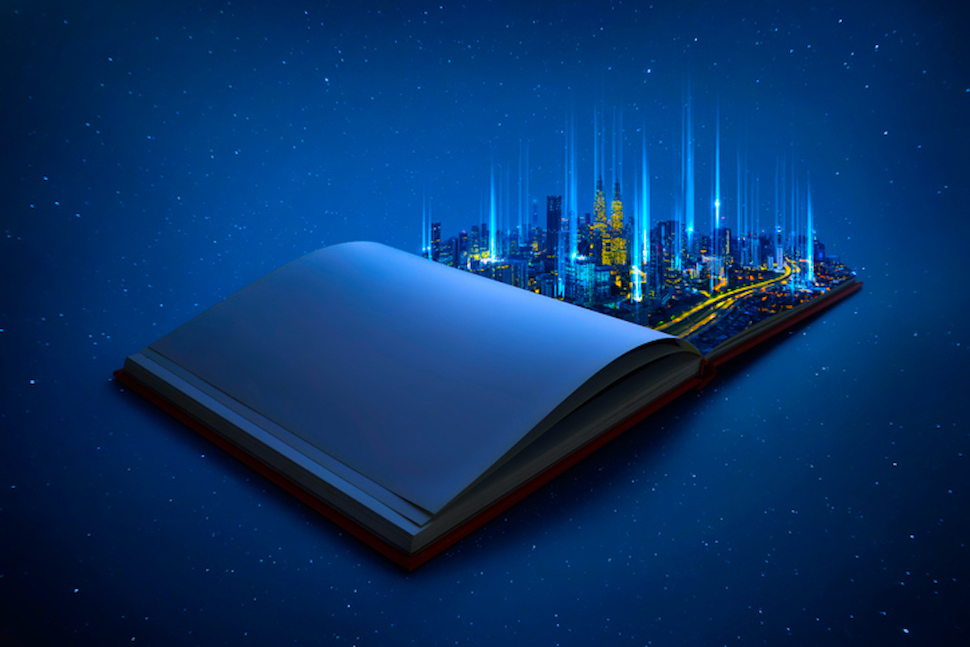Table of Contents
In a November 15th, 2017 interview with Rolling Stone at SpaceX headquarters in Hawthorne, California, Elon Musk told Neil Strauss, “I was raised by books. Books, and then my parents.” – Elon Musk
This article contains the list of all novels and fiction and nonfiction books that Elon Musk has ever recommended, mentioned, or praised publicly in interviews and Tweets.
In this list, these books are arranged by reading or grand level from easiest to most difficult.
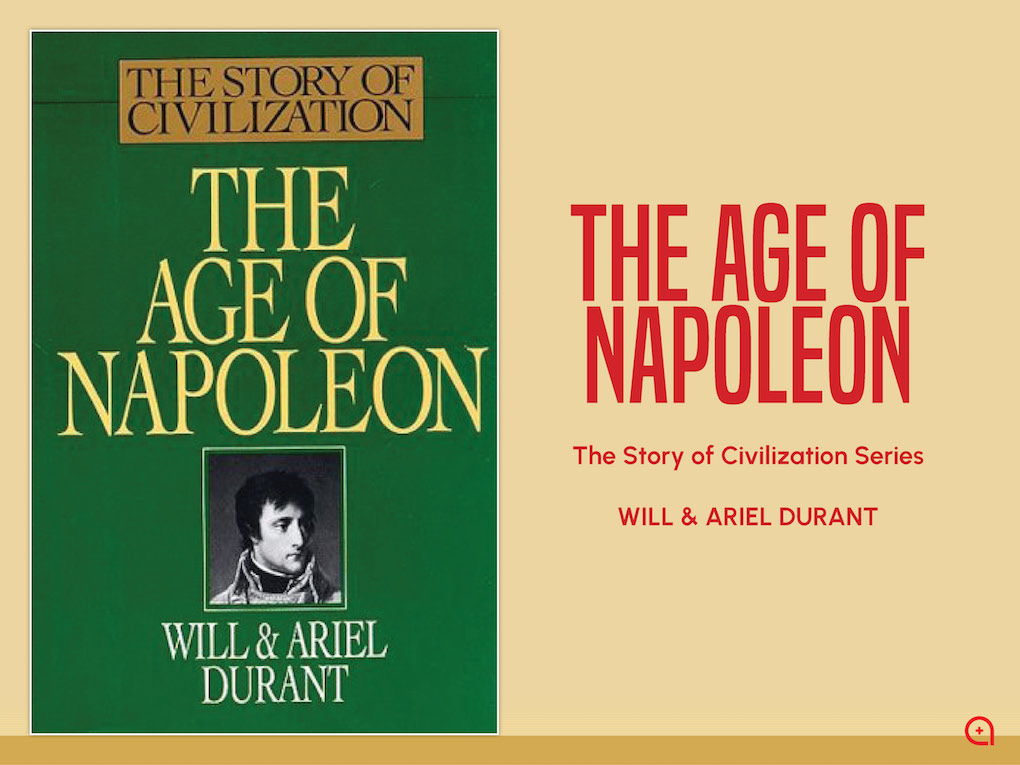
The Age of Napoleon, by Will & Ariel Durant
© 1975 • Nonfiction • 12th Grade • 11 Volumes • 10,000 pages • 96% 👍🏿
Elon Musk: “The Age of Napoleon by Will & Ariel Durant is an amazing book” – Elon Musk, Tweet, 15 May 2020
This tweet appears to imply Musk may have read the entire “Story of Civilization” series, of which The Age of Napoleon is the final volume.
The books in this series are:
- Our Oriental Heritage (1935)
- The Life of Greece (1939)
- Caesar and Christ (1944)
- The Age of Faith (1950)
- The Renaissance (1953)
- The Reformation (1957)
- The Age of Reason Begins (1961)
- The Age of Louis XIV (1963)
- The Age of Voltaire (1965)
- Rousseau and Revolution (1967)
- The Age of Napoleon (1975)
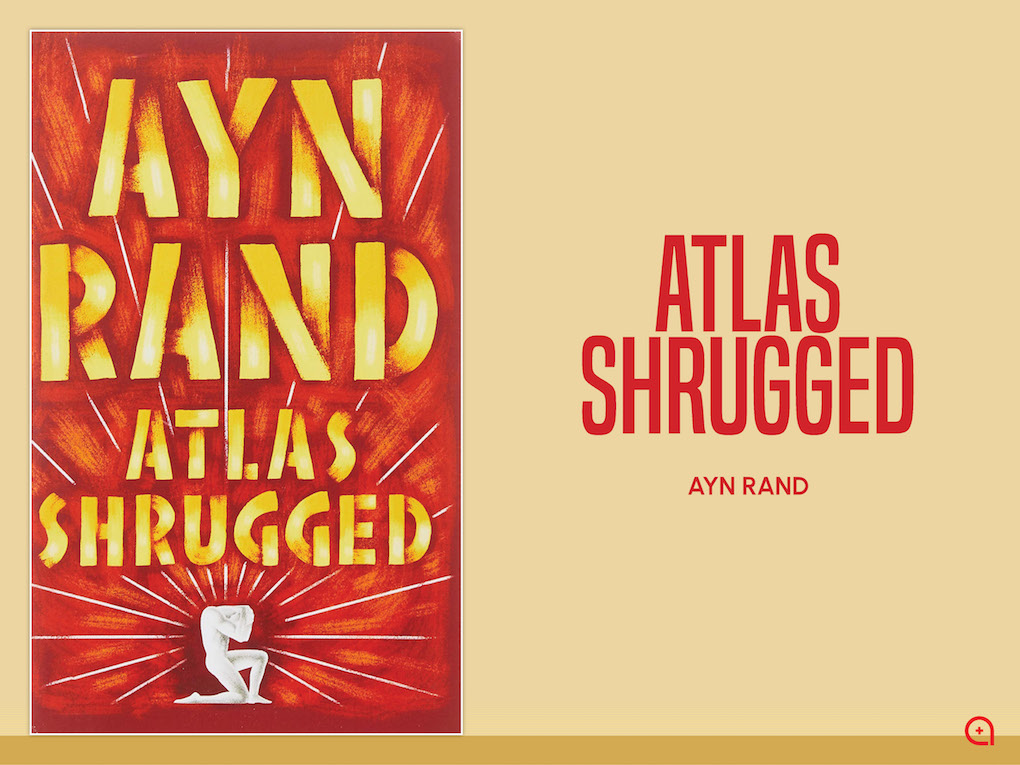
Atlas Shrugged, by Ayn Rand
© 1957 • Philosophical Fiction • 7-12th Grade • 1,168 pages • 81% 👍🏿
Elon Musk: “Very appealing if you’re a sophomore in college. It’s a counterpoint to communism and useful as such, but should be tempered with kindness.” – Elon Musk, Tweet, 16 June 2018
(It’s difficult to tell if Musk actually references this book, as an earlier tweet was deleted by its author.)
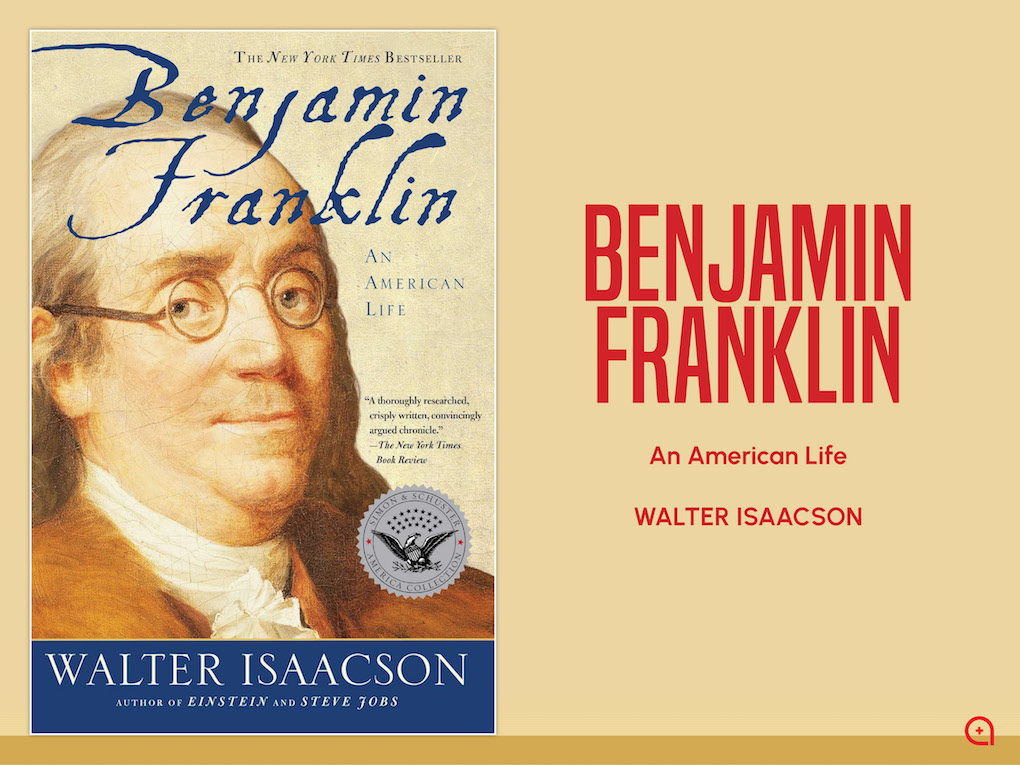
Benjamin Franklin: An American Life, by Walter Isaacson
© 2004 • Biography • Young Adult • 603 pages • 91% 👍🏿
Elon Musk: “Am reading a great biography of Ben Franklin by Isaacson. Highly recommended.” – Elon Musk, Tweet, 3 December 2011
Elon Musk: “I like biographies in general. Biographies I think are really always an interesting read.
Interviewer (CNN): “What do you learn from them?
Elon Musk: “Well, I think you learn a lot depending upon whose life you’re reading about, there are lots of lessons in there.
“I read Isaacson’s biography of Job’s which I thought was quite interesting. And I actually really liked his biography of Benjamin Franklin who I would say is certainly one of my heroes. He seemed like a really great guy.
CNN: “And you actually manage to incorporate any of this into your own strategy, your own way of doing business, your own ethos and philosophy?”
Elon Musk: “Well I think in the case of Franklin, he did what needed to be done at the time it needed to be done. You know, he was in different fields and, uh, he sort of thought about, ‘What’s the important thing that needs to be accomplished right now?,” and then worked on that.” – CNN Interview, “Reading for Leading,” June 2014
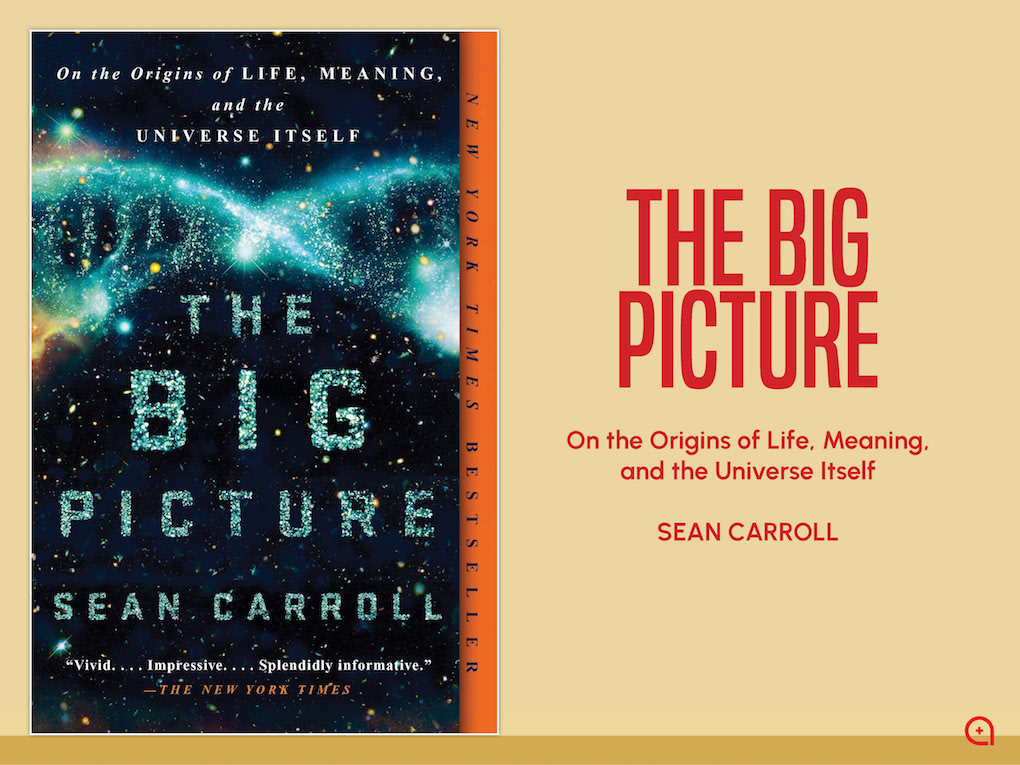
The Big Picture: On the Origins of Life, Meaning, and the Universe Itself, by Sean M. Carroll
© 2017 • Nonfiction • Young Adult • 480 pages • 92% 👍🏿
Elon Musk: “Highly recommend anything by Sean Carroll.” – Elon Musk, Tweet, 12 June 2016.
Musk is retweeting and commenting on Sean Carroll’s 6 May tweet: “The Big Picture: On the Origins of Life, Meaning, & the Universe Itself is out Tues! What’s inside & why I wrote it….” – Sean Carroll
Sean Carroll’s other works, though not specifically mentioned by Elon Musk include:
- Something Deeply Hidden: Quantum Worlds and the Emergence of Spacetime [2020]
- Spacetime and Geometry: An Introduction to General Relativity [2019]
- The Particle at the End of the Universe: How the Hunt for the Higgs Boson Leads Us to the Edge of a New World [2012]
- From Eternity to Here: The Quest for the Ultimate Theory of Time [2009]
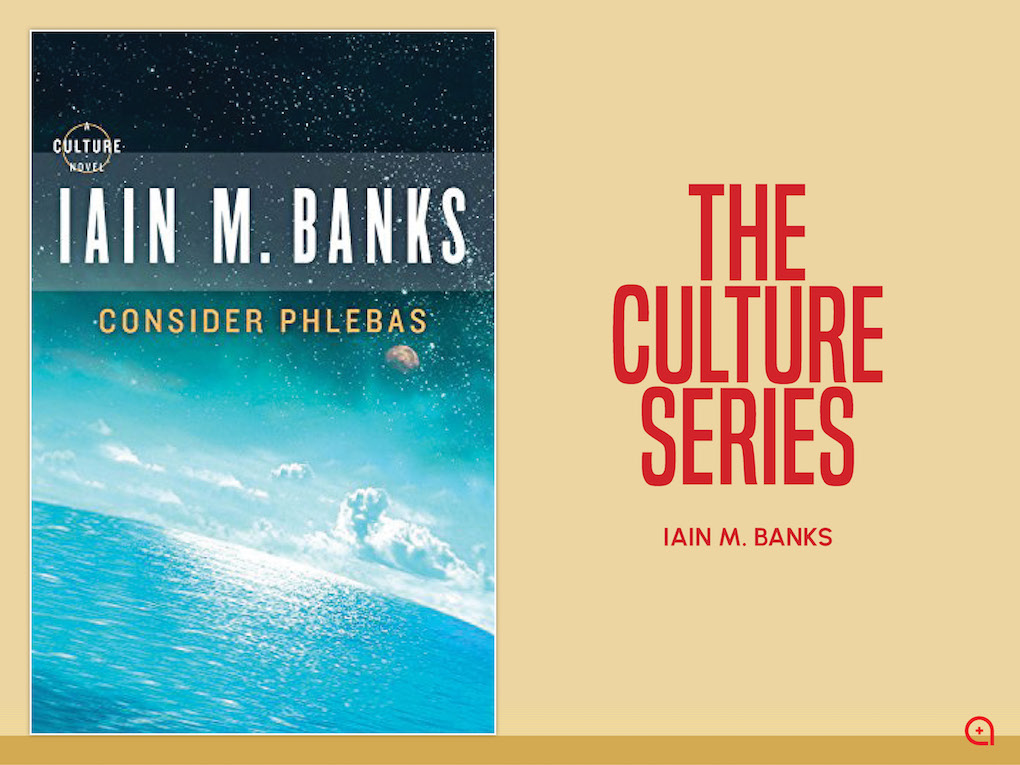
The Culture Series novels by Iain M. Banks
© 1987-2012 • Science fiction • Young Adult • 10 book series • 91% 👍🏿
Elon Musk: “Reading The Culture series by Banks. Compelling picture of a grand, semi-utopian galactic future. Hopefully not too optimistic about AI.” – Elon Musk, Tweet, 25 December 2014
Elon Musk: “I love Banks. Best books in recent years imo are Iain Banks & George Martin.” – Elon Musk, Tweet, 15 June 2018
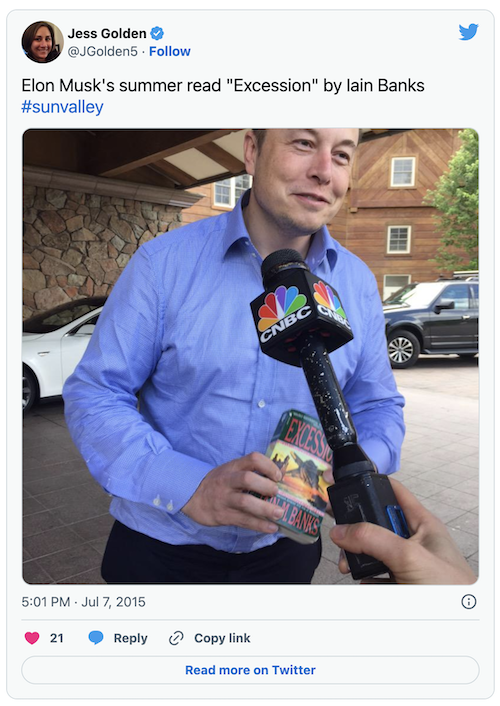
The Culture series comprises the following nine novels and the short story collection, “The State of the Art.”
- Consider Phlebas [1987]
- The Player of Games [1988]
- Use of Weapons [1990]
- The State of the Art [1991]
- Excession [1996]
- Inversions [1998]
- Look to Windward [2000]
- Matter [2008]
- Surface Detail [2010]
- The Hydrogen Sonata [2012]
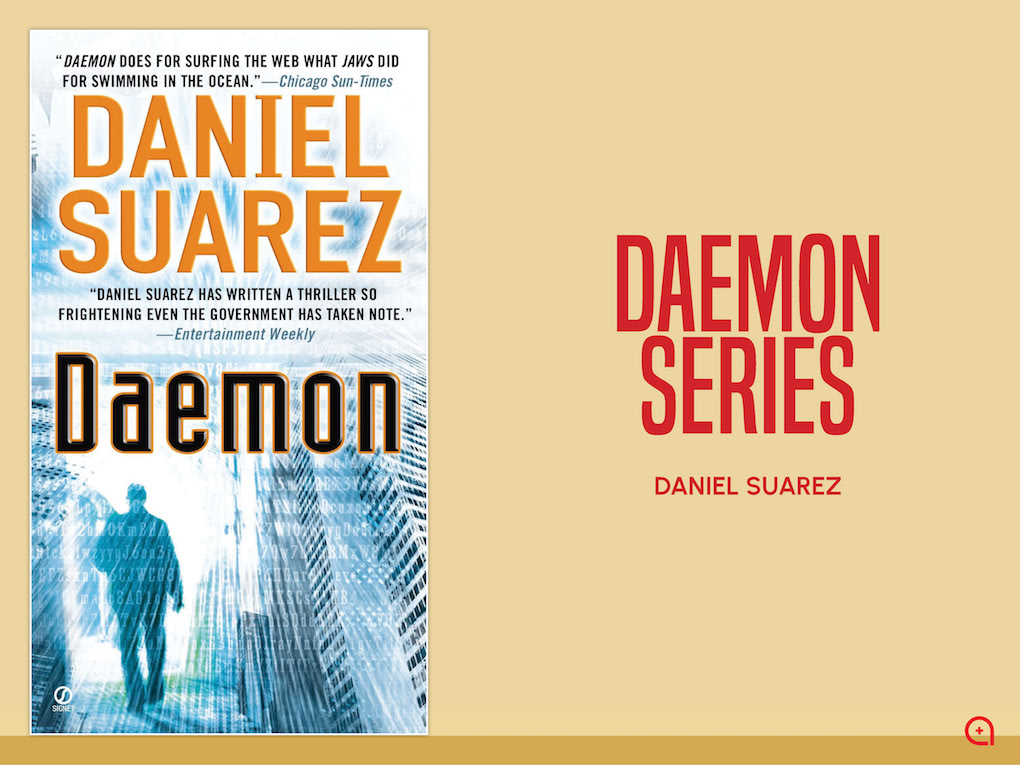
Daemon series novels by Daniel Suarez
© 2009 • Social science fiction • Young Adult • 632 pages • 95%
Michael B. Johnson: Replying to @elonmusk, “@elonmusk read daemon from @itsDanielSuarez – terrifyingly possible.” [Aug 2, 2014]
Elon Musk: “@drwave @itsDanielSuarez Yeah, Daemon is a great read.” – Elon Musk, Tweet, 2 August 2014
(The second book in this series is “Freedom™” published in 2011).
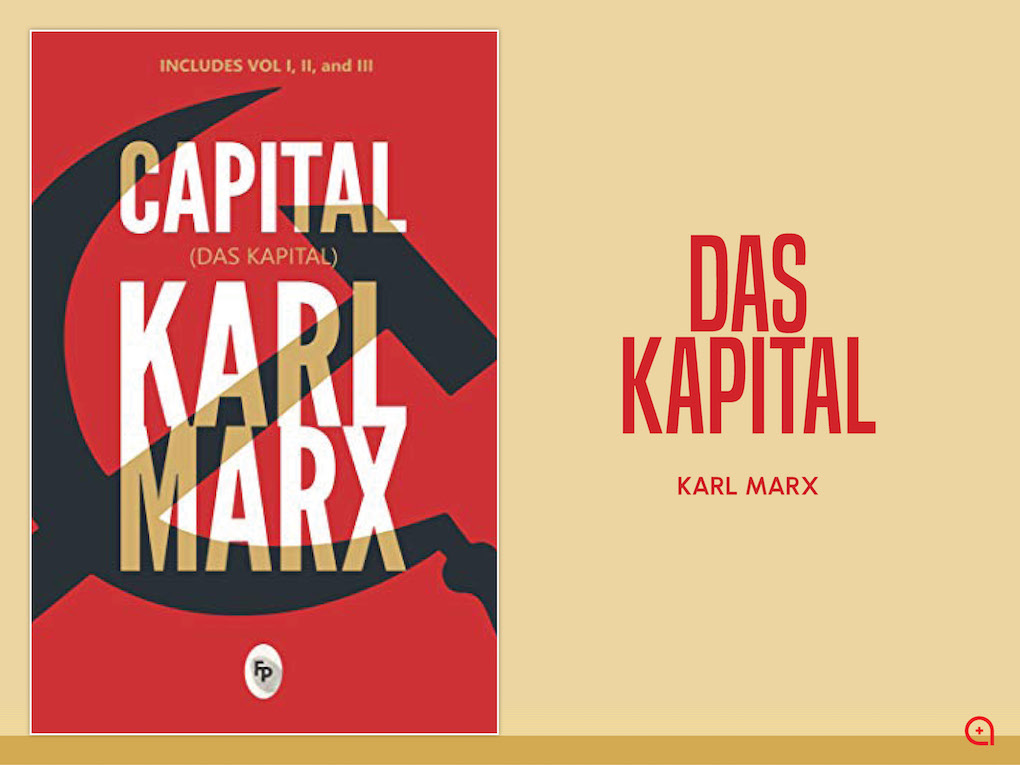
Das Kapital, by Karl Marx
© 1867 • Treatise • Grade 12 & Up • 200 pages • 76% 👍🏿
Elon Musk: “Read Das Kapital when I was 14, incl cross-checking English translation of original German. Adam Smith FTW obv. Ironically, future automation will naturally lead to greater equality of consumption. Monopolies are true enemy of people. Competing to serve is good.” – Elon Musk, Tweet, 16 June 2018
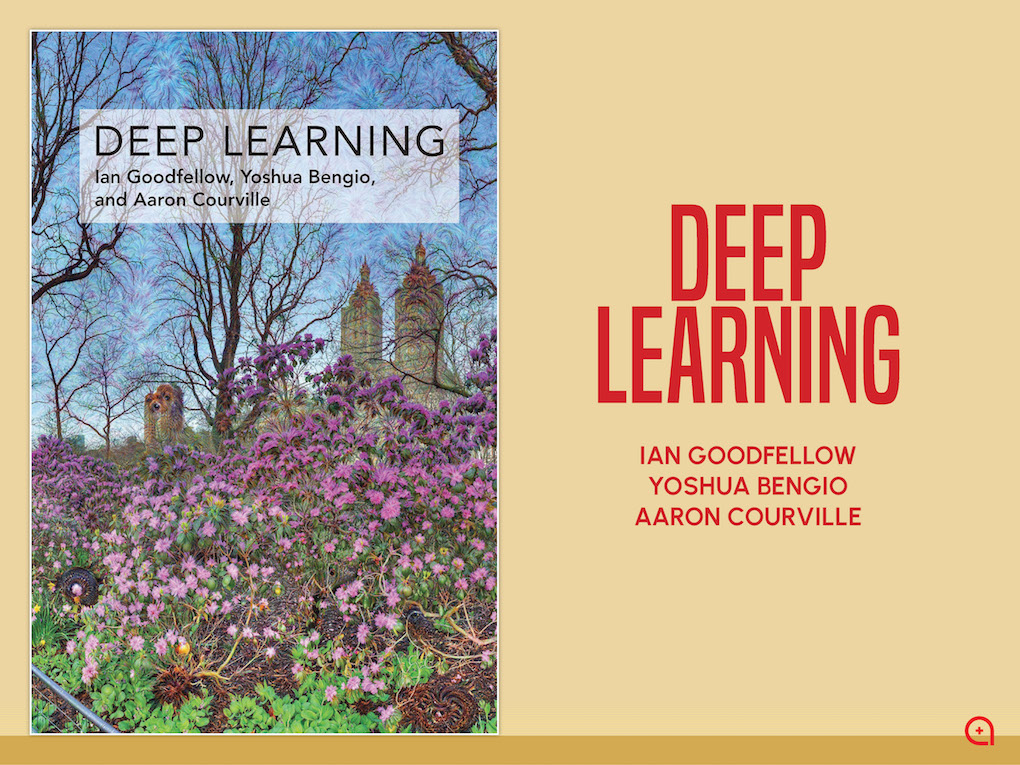
Deep Learning, by Ian Goodfellow, Yoshua Bengio, and Aaron Courville
© 2016 • Textbook • Undergraduate • 801 pages • 96% 👍🏿
Elon Musk: “Written by three experts in the field, Deep Learning is the only comprehensive book on the subject. It provides much-needed broad perspective and mathematical preliminaries for software engineers and students entering the field, and serves as a reference for authorities.” – Elon Musk via MIT Press
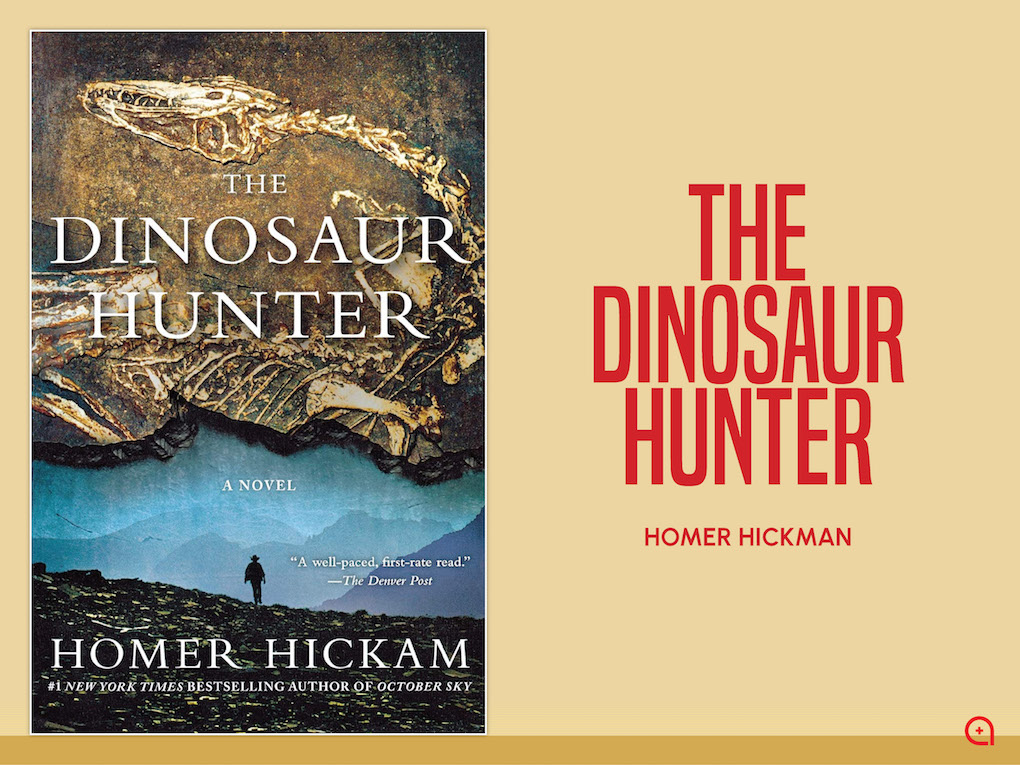
The Dinosaur Hunter: A Novel, by Homer Hickman
© 2010 • Mystery, Thriller, Suspense, • 321 pages • 84% 👍🏿
Musk is pictured reading this or a part of it here. Homer Hickam is also the author of the New York Times bestseller, “Rocket Boys” and the Coalwood series.
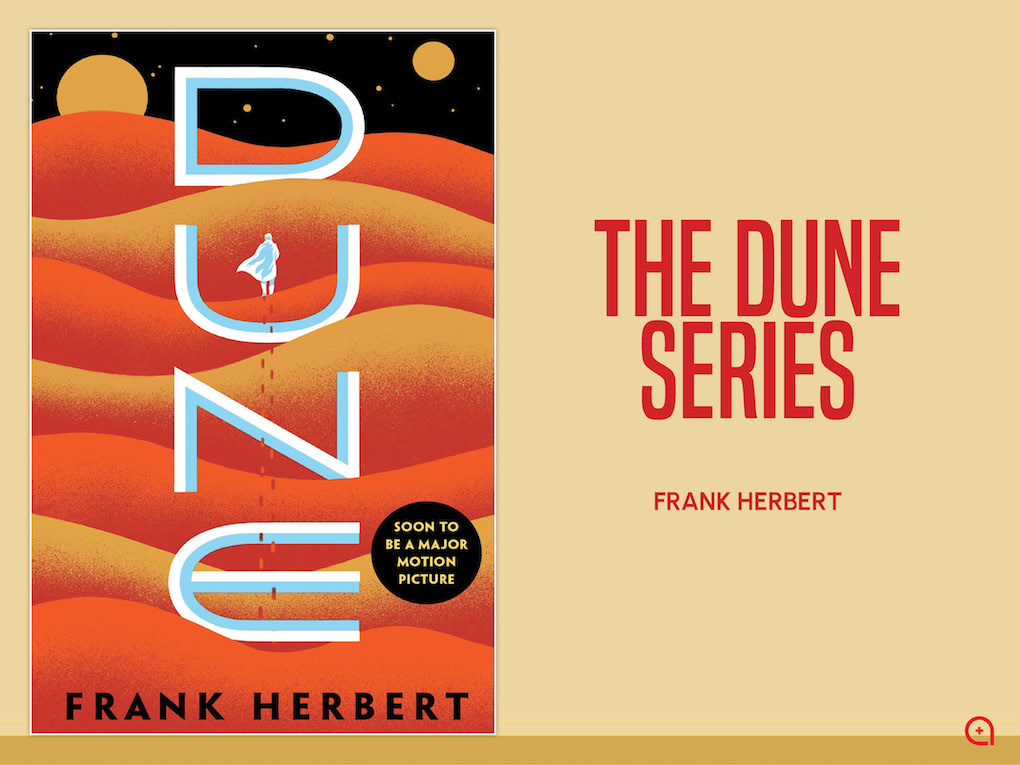
The Dune series novels by Frank Herbert
© 1965-1985 • Science fiction • 602 pages • 90% 👍🏿
Elon Musk: “Dune series by Herbert also brilliant. He advocates placing limits on machine intelligence.” – Elon Musk, Tweet, 8 December 2014
The Dune series by Frank Hebert comprises the following six books:
- Dune [1965]
- Dune Messiah [1969]
- Children of Dune [1976]
- God Emperor of Dune [1981]
- Heretics of Dune [1984]
- Chapterhouse: Dune [1985]
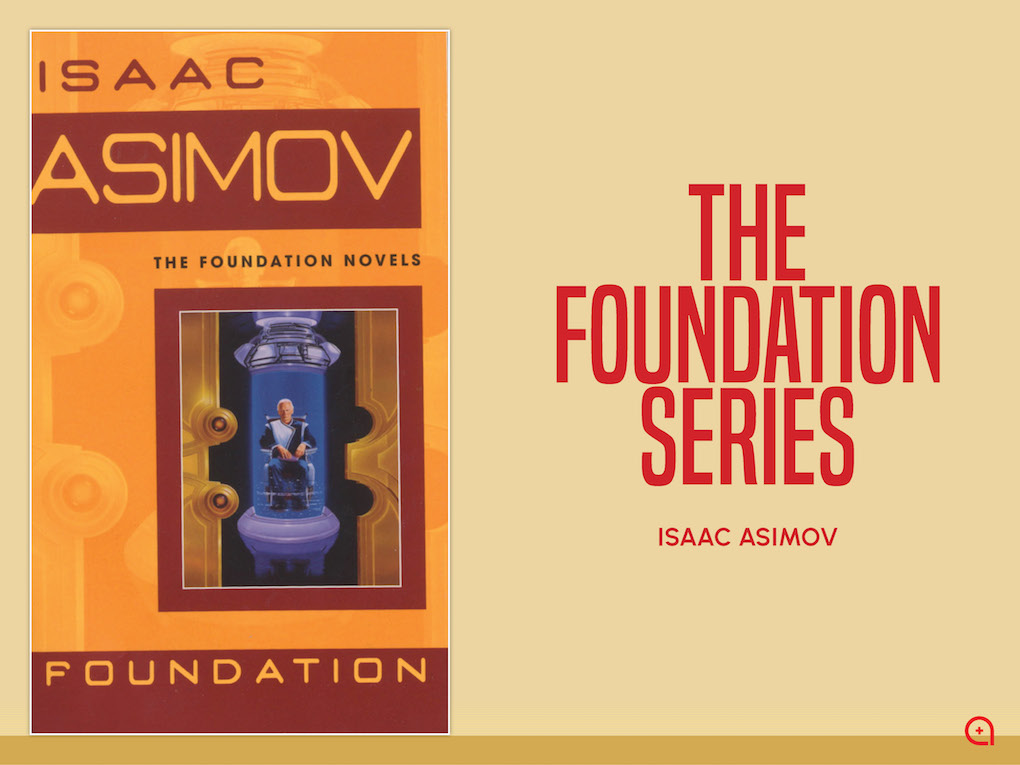
The Foundation series novels by Isaac Asimov
© 1951-1988 • Science fiction • 255 pages (Fdn) • 88% 👍🏿
Will Hester: “What’s your favorite book about space? #APSpaceChat”
Elon Musk: “Ignition by John Clarke, Huzel & Wang book on propulsion, Asimov’s Foundation, Heinlein’s MiaHM @WHester #APSpaceChat” – Elon Musk, Tweet, 3 May 2012
Elon Musk: “Should prob articulate philosophy underlying my actions. It’s pretty simple & mostly influenced by Douglas Adams & Isaac Asimov.” – Elon Musk, Tweet, 15 June 2018
Elon Musk: “Foundation Series & Zeroth Law are fundamental to creation of SpaceX” – Elon Musk, Tweet, 15 June 2018
The Foundation series by Isaac Asimov comprises the following seven books:
- Prelude to Foundation [1988]
- Forward the Foundation [1993]
- Foundation [1951]
- Foundation and Empire [1952]
- Second Foundation [1953]
- Foundation’s Edge [1982]
- Foundation and Earth [1986]
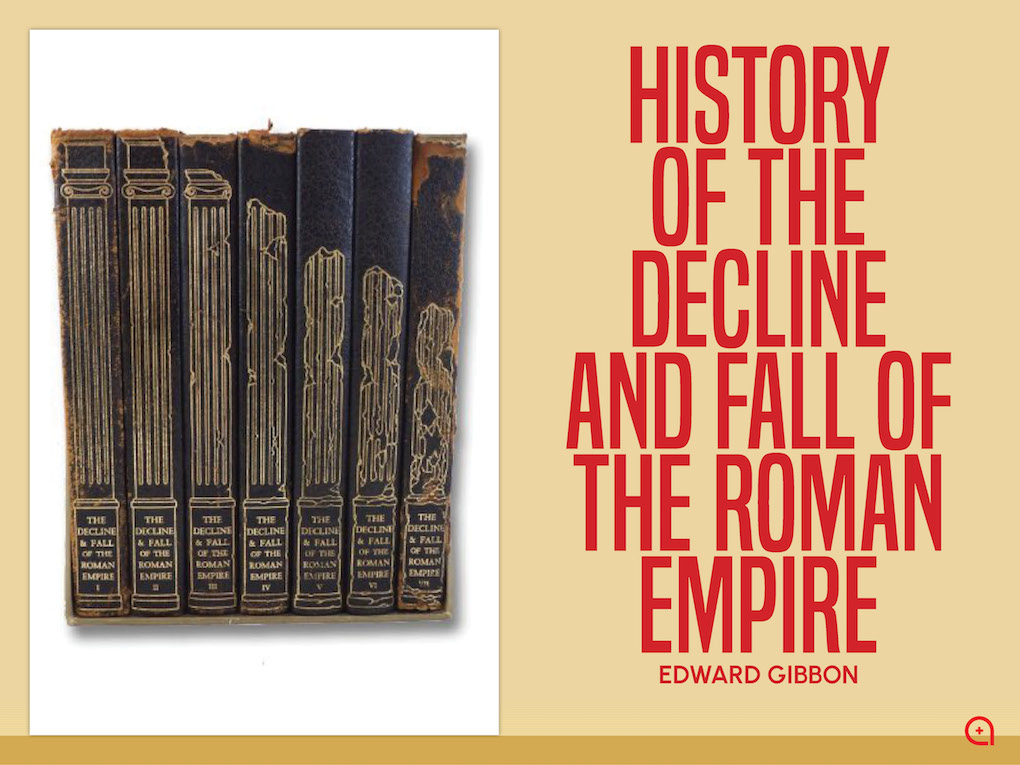
The History of the Decline and Fall of the Roman Empire, by Edward Gibbon
© 1776–1789 • History • 795 pages • 84% 👍🏿
“Asimov certainly was influential because he was seriously paralleling Gibbon’s Decline and Fall of the Roman Empire, but he applied that to a sort of modern galactic empire,” Musk explains.
“The lesson I drew from that is you should try to take the set of actions that are likely to prolong civilization, minimize the probability of a dark age and reduce the length of a dark age if there is one.” – Elon Musk, in “The Architect of Tomorrow,” Rolling Stone, November 15, 2017
“It’s [Isaac Asimov’s Foundation series] sort of a futuristic version of Gibbon’s Decline and Fall of the Roman Empire. Let’s say you were at the peak of the Roman empire, what would you do, what action could you take, to minimize decline?”
“The lessons of history would suggest that civilizations move in cycles. You can track that back quite far–the Babylonians, the Sumerians, followed by the Egyptians, the Romans, China. We’re obviously in a very upward cycle right now and hopefully that remains the case. But it may not.
“There could be some series of events that cause that technology level to decline. Given that this is the first time in 4.5bn years where it’s been possible for humanity to extend life beyond Earth, it seems like we’d be wise to act while the window was open and not count on the fact it will be open a long time.” – “Elon Musk’s Mission to Mars,” The Guardian, July 17, 2013
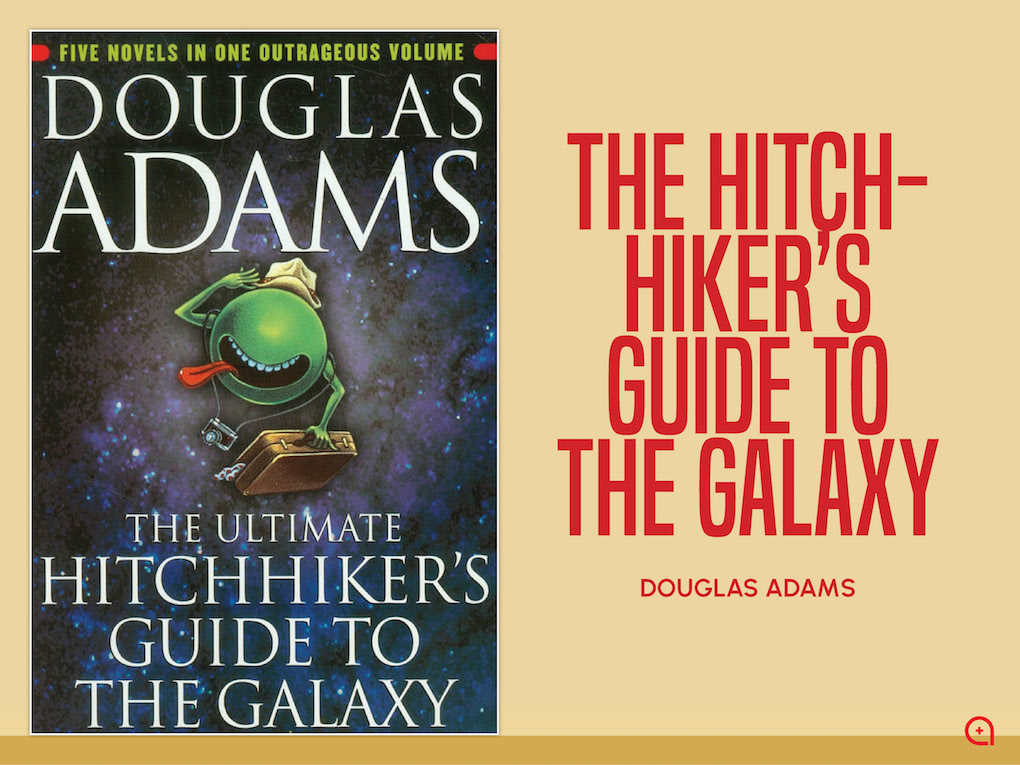
The Hitchhikers Guide to the Galaxy, by Douglas Adams
© 1979 • Comic science fiction • 208 pages • 93% 👍🏿
Elon Musk: “I had kind of an existential crisis when I was a kid. Trying to figure out what’s the meaning of life?, why are we here?, what’s the point of it all?, is it all meaningless?
I got quite depressed, actually and sad about it, and then the thing that kind of broke me out of it was reading Douglas Adams’s “Hitchhiker’s Guide to the Galaxy,” where he essentially pointed out that the universe is the answer and, really, the hard part is figuring out what questions to ask about the answer that is the universe.” – Elon Musk, Clubhouse interview, January 31, 2021
Alison van Diggelen: “I understand Hitchhikers Guide to the Galaxy, that wonderful book by Douglas Adams, that was a key book for you. What was it about that book that fired your imagination?”
Elon Musk: “I guess when I was around 12 or 15…I had an existential crisis, and I was reading various books on trying to figure out the meaning of life and what does it all mean?
“It all seemed quite meaningless and then we happened to have some books by Nietzsche and Schopenhauer in the house, which you should not read at age 14 (laughter). It is bad, it’s really negative.
“So then I read Hitchhikers Guide to the Galaxy which is quite positive I think and it highlighted an important point which is that a lot of times the question is harder than the answer.
“And if you can properly phrase the question, then the answer is the easy part. So, to the degree that we can better understand the universe, then we can better know what questions to ask.
“Then whatever the question is that most approximates: what’s the meaning of life?
“That’s the question we can ultimately get closer to understanding. And so I thought to the degree that we can expand the scope and scale of consciousness and knowledge, then that would be a good thing.” – Elon Musk, interview with Alison van Diggelen, January 22, 2013.
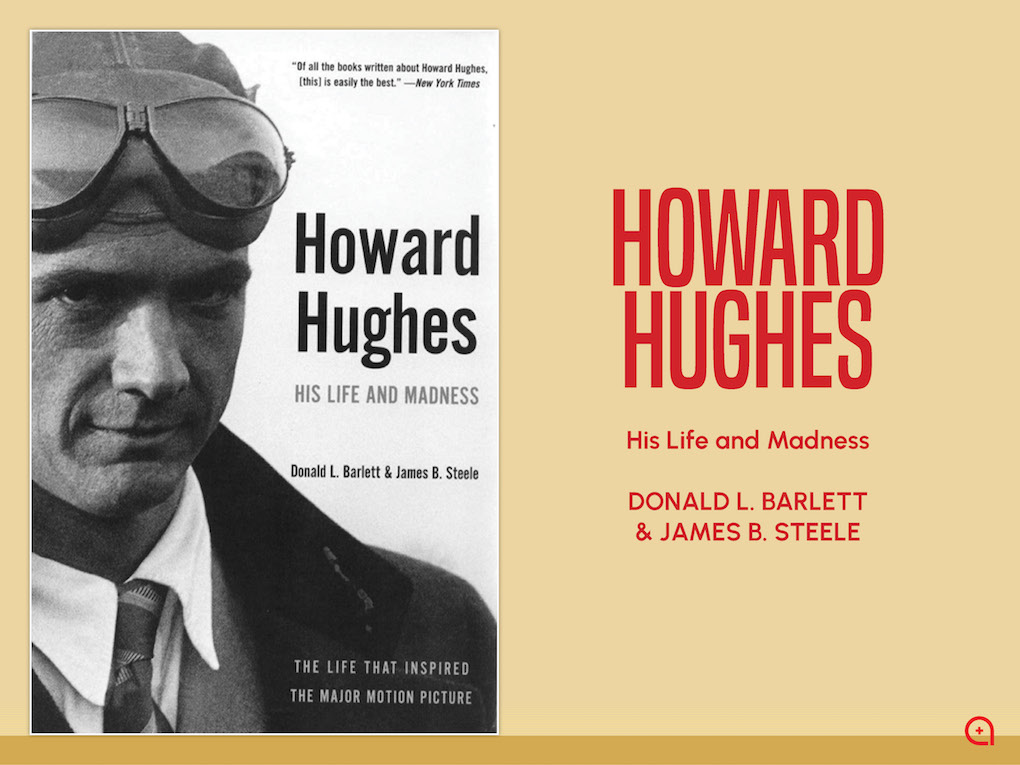
Howard Hughes: His Life and Madness, by Donald L. Barlett & James B. Steele
© 1979 • Biography • 687 pages • 88% 👍🏿
Elon Musk: “I’ll tell you honestly the book I’m reading, which I was sort of thinking ‘Should I say this or not,’ but, it’s a book on Howard Hughes [His Life and Madness], which, you know, may be a cautionary tale. He’s sort of an interesting fellow. Definitely want to make sure I don’t grow my fingernails too long and start peeing in jars.”
CNN: “Why Howard Hughes? What is it about him that you found interesting?”
Elon Musk: “I’ve just been meaning to read a book about him for ages and I haven’t, and so… I’m broadly aware of sort of the things he’s done and I saw the movie The Aviator, and you know, a few other things.”
….
CNN: “Are you an online, on tablet, a Kindle, or a crinkle of the paper?”
Elon Musk: “There is something romantic about traditional books, of course. But I find, since I’m traveling so much, that I often find I’m reading the books on my iPhone, which may sound like ‘Wow, this is really tiny,’ but, it’s always with you.”
CNN: “You’re not reading the Howard Hughes book on your iPhone?”
Elon Musk: “Yes, I am. Yeah.”
CNN: “You’re reading a Howard Hughes book on something the size of this?
Elon Musk: “Yes. It’s small. But it works.” – CNN Interview, “Reading for Leading,” June 2014
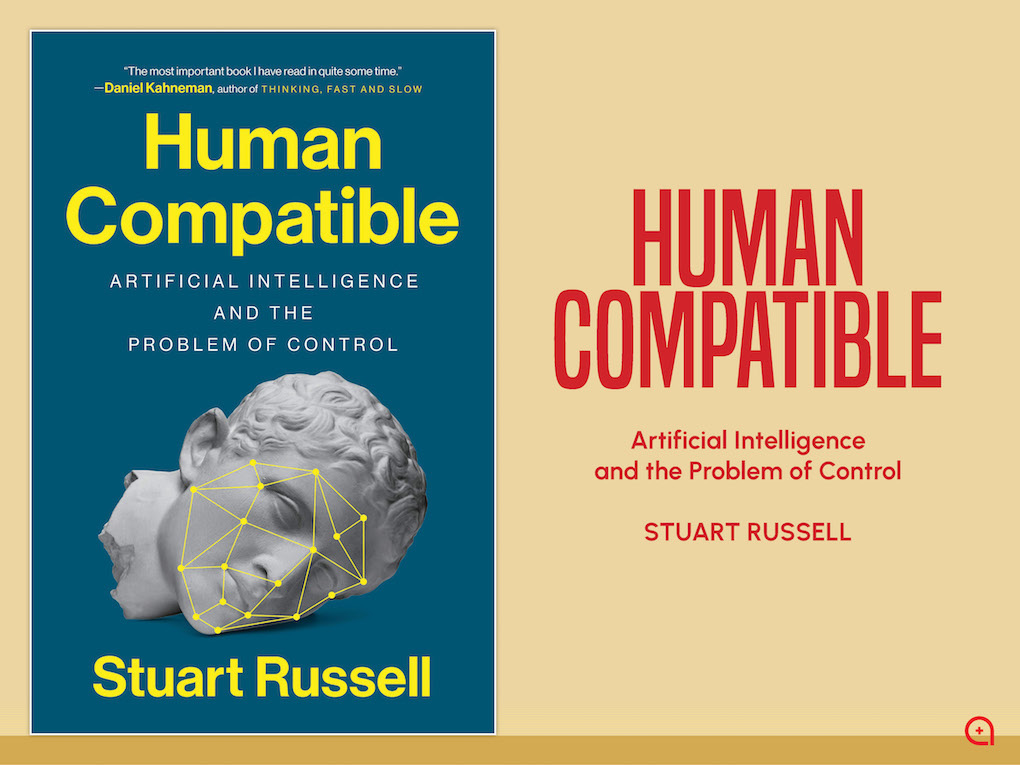
Human Compatible: Artificial Intelligence and the Problem of Control, by Stuart Russell
© 2019 • Non-fiction • 352 pages • 84% 👍🏿
Elon Musk: “Worth reading “Human Compatible” by Stuart Russell (he’s great!) about future AI risks & solutions [Amazon link]”
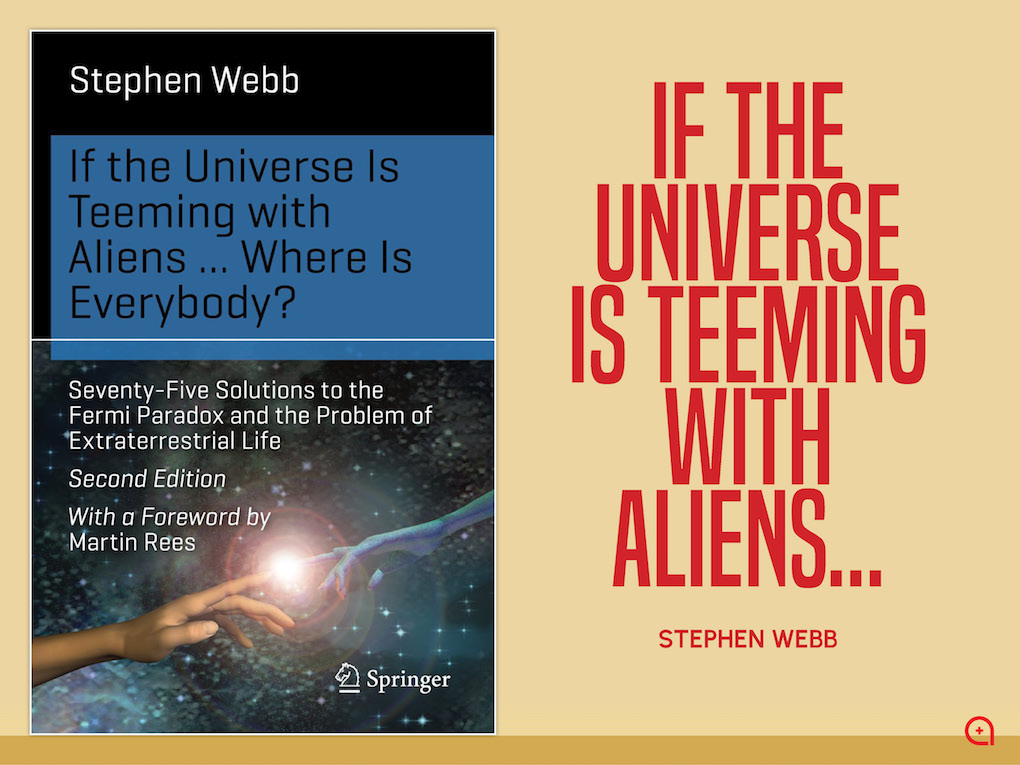
If The Universe Is Teeming With Aliens… Where Is Everybody? by Stephen Webb
© 2002 • Science & Nature • 288 pages • 88% 👍🏿
Elon Musk: “Great book. Read it when it came out.” – Elon Musk, Tweet, 28 May 2018
(The tweet this was in reply to has been deleted but several sources list this book.)
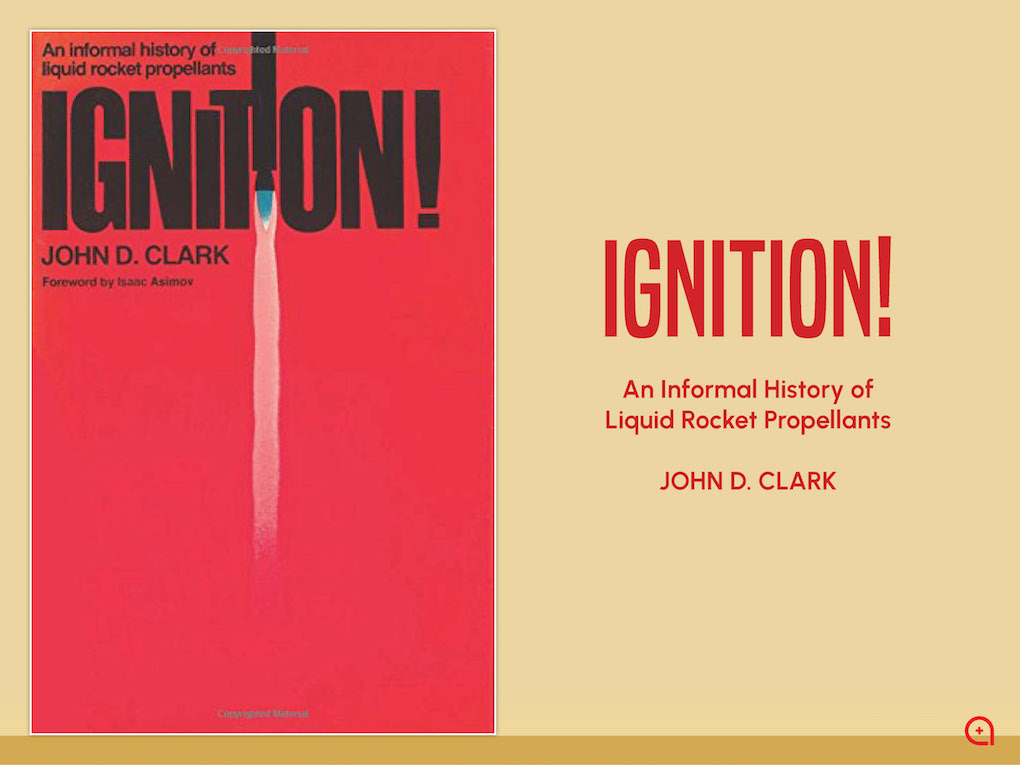
Ignition! An Informal History of Liquid Rocket Propellants, by John D. Clark
© 1972 • Biography • 302 pages • 84% 👍🏿
Elon Musk: “There is a good book on rocket stuff called ‘Ignition!’ by John Clark that’s a really fun one.”
Will Hester: “What’s your favorite book about space? #APSpaceChat”
Elon Musk: “Ignition by John Clarke, Huzel & Wang book on propulsion, Asimov’s Foundation, Heinlein’s MiaHM @WHester #APSpaceChat” – Elon Musk, Tweet, 3 May 2012
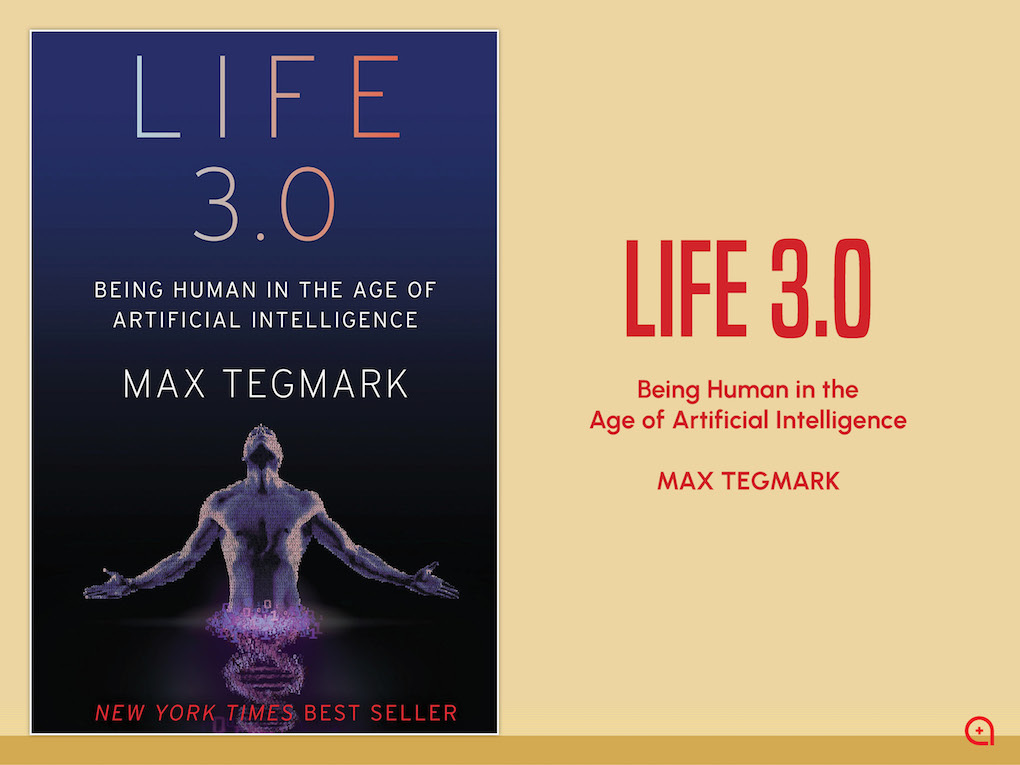
Life 3.0: Being Human in the Age of Artificial Intelligence, by Max Tegmark
© 2017 • Non-fiction • 280 pages • 95% 👍🏿
Elon Musk: “This is a compelling guide to the challenges and choices in our quest for a great future of life, intelligence and consciousness—on Earth and beyond.” – Elon Musk dust jacket blurb on Life 3.0
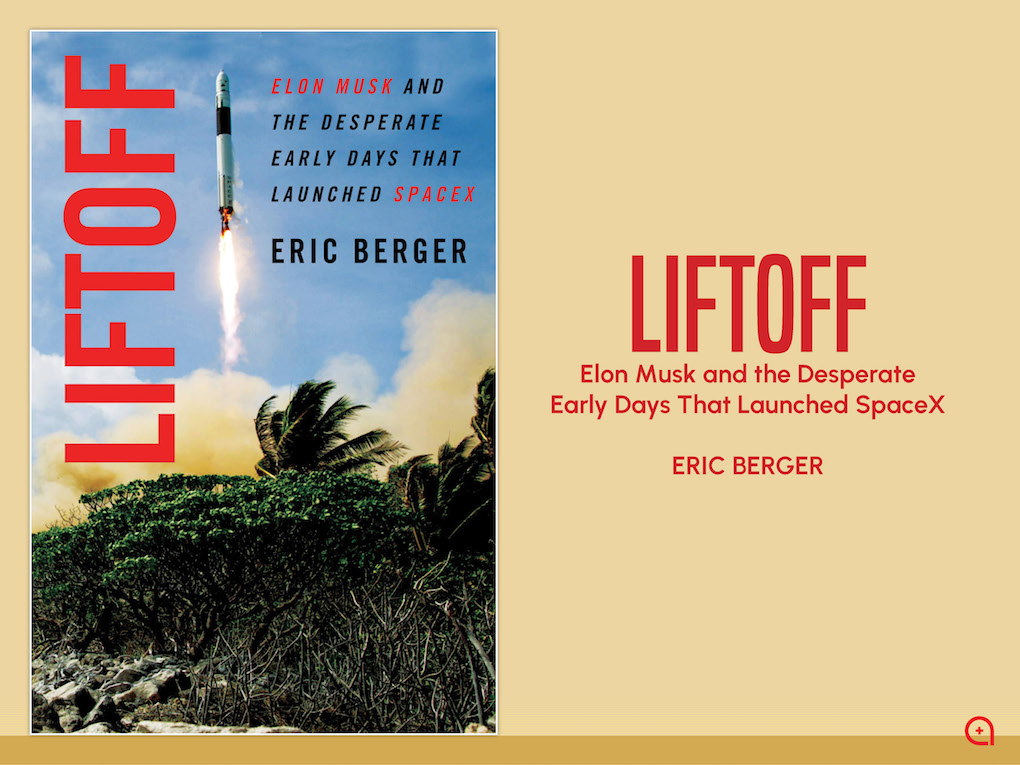
Liftoff: Elon Musk and the Desperate Early Days That Launched SpaceX, by Eric Berger
© 2021 • Current events • 319 pages • 98% 👍🏿
Elon Musk: “Not quite how I would tell the story, but it’s probably worth a read” – Elon Musk, Tweet, 20 March 2021
Elon Musk: “Just read it. Book is accurate.” – Elon Musk, Tweet, 9 April 2021
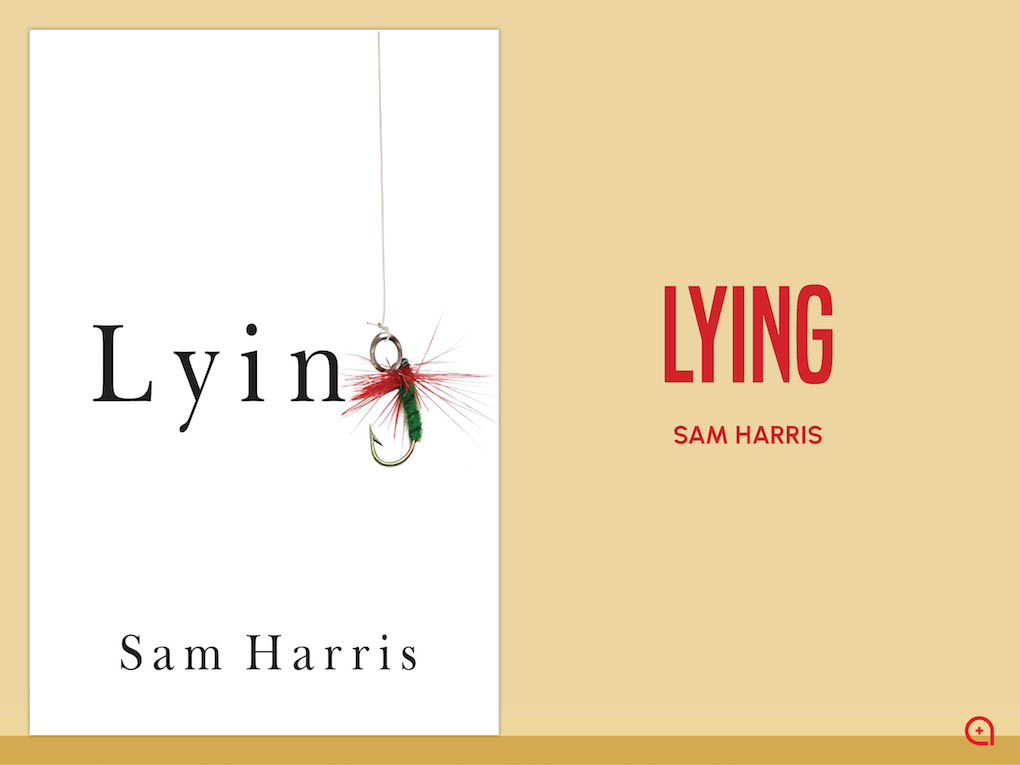
Lying, by neuroscientist Sam Harris
© 2011 • Self-help, Philosophy • 105 pages • 93% 👍🏿
Elon Musk: “Read ‘Lying’, the new book by my friend Sam Harris. Excellent cover art and lots of good reasons not to lie!” – Elon Musk, Tweet, 21 December 2011
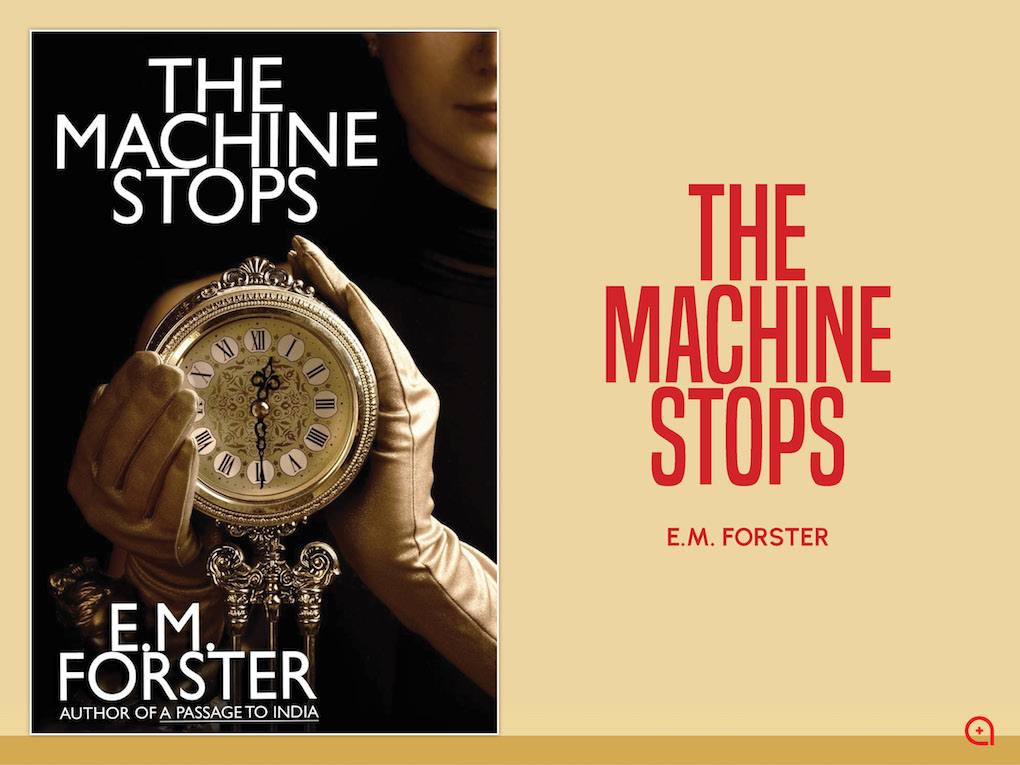
The Machine Stops, by E.M. Forster
© 1909 • Science fiction • 50 pages • 88% 👍🏿
Elon Musk: “Worth reading The Machine Stops, an old story by E. M. Forster” – Elon Musk, Tweet, 2 January 2016
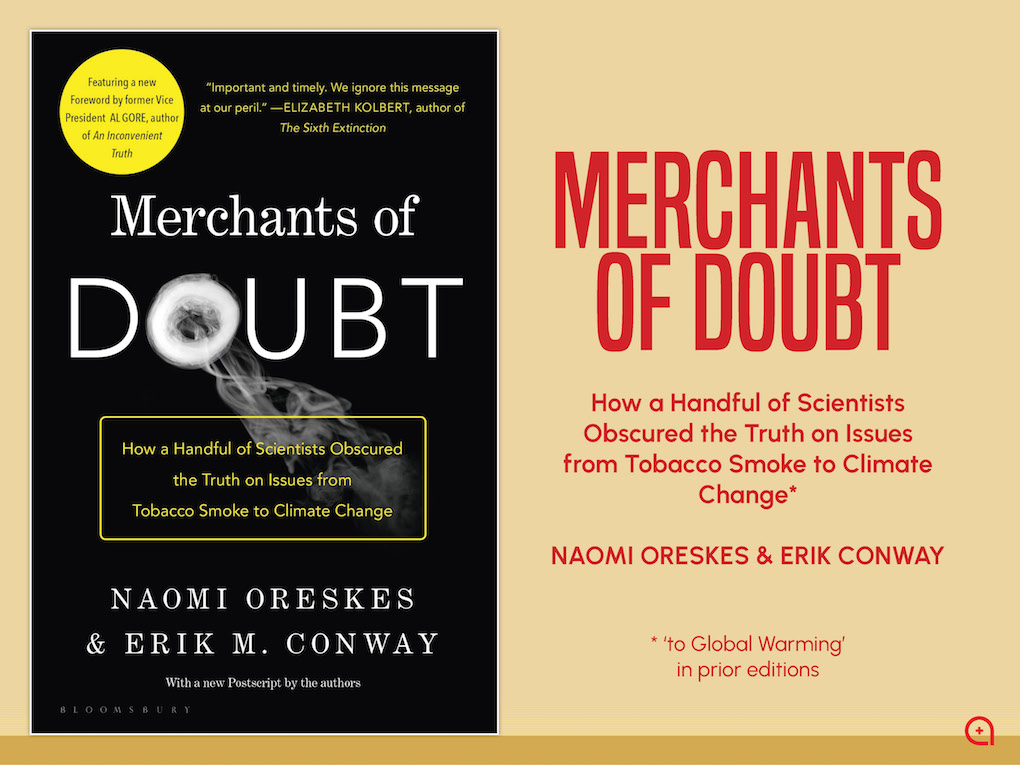
Merchants of Doubt, by Naomi Oreskes
© 2010 • Non-fiction • 355 pages • 88% 👍🏿
Elon Musk: “Worth reading Merchants of Doubt. Same who tried to deny smoking deaths r denying climate change” – Elon Musk, Tweet, 25 May 2013
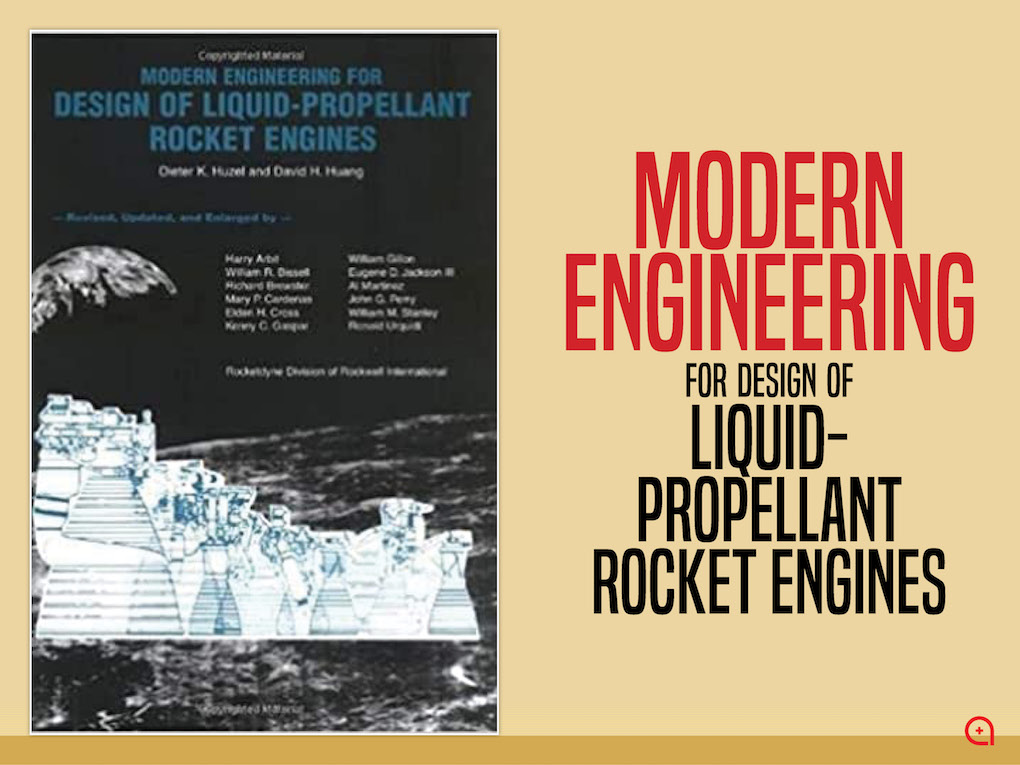
Modern Engineering for Design of Liquid-Propellant Rocket Engines, by Dieter Huzel and David Huang
© 1992 • Textbook • 431 pages • 96% 👍🏿
Will Hester: “What’s your favorite book about space? #APSpaceChat”
Elon Musk: “Ignition by John Clarke, Huzel & Wang book on propulsion, Asimov’s Foundation, Heinlein’s MiaHM @WHester #APSpaceChat” – Elon Musk, Tweet, 3 May 2012
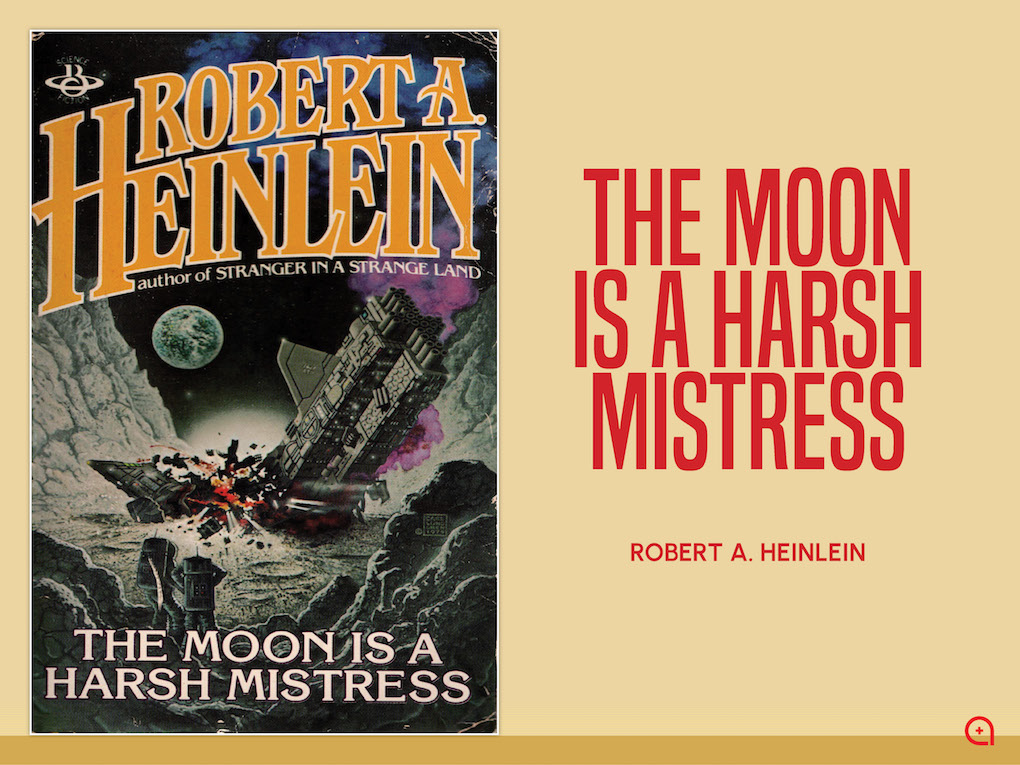
The Moon Is a Harsh Mistress, by Robert A. Heinlein
© 1966 • Science fiction • 382 pages • 88% 👍🏿
Will Hester: “What’s your favorite book about space? #APSpaceChat”
Elon Musk: “Ignition by John Clarke, Huzel & Wang book on propulsion, Asimov’s Foundation, Heinlein’s MiaHM @WHester #APSpaceChat” – Elon Musk, Tweet, 3 May 2012
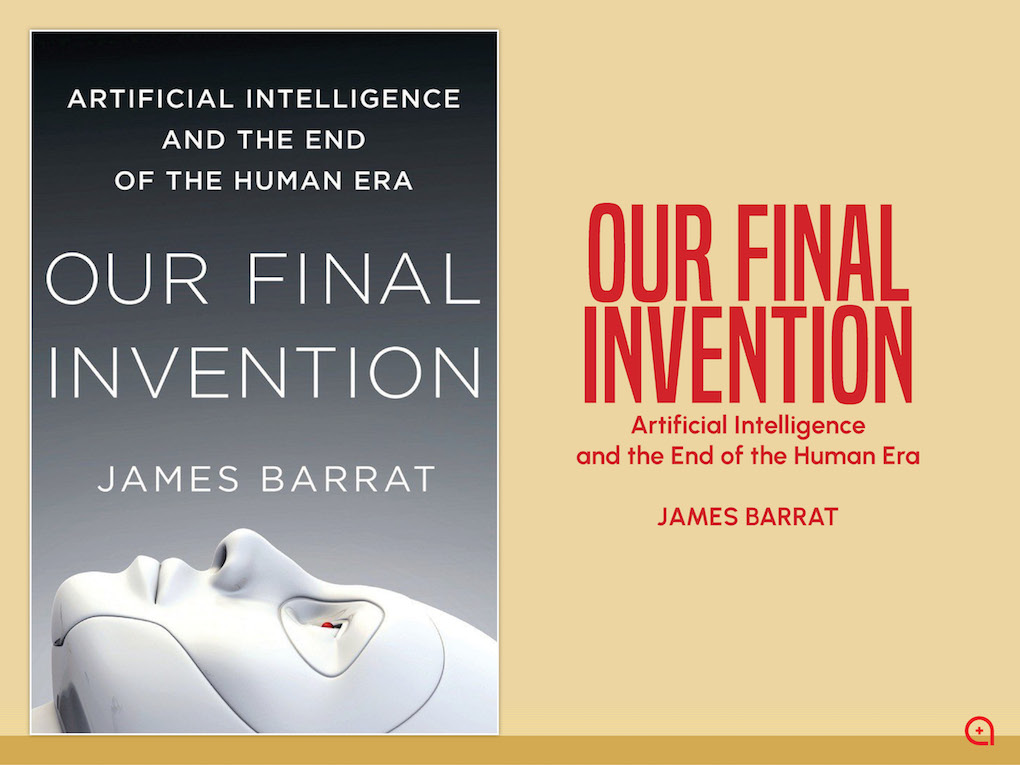
Our Final Invention: Artificial Intelligence and the End of the Human Era, by James Barrat
© 2015 • Non-fiction • 336 pages • 89% 👍🏿
Elon Musk: “While on the subject of AI risk, Our Final Invention by @jrbarrat is also worth reading” – Elon Musk, Tweet, 3 August 2014
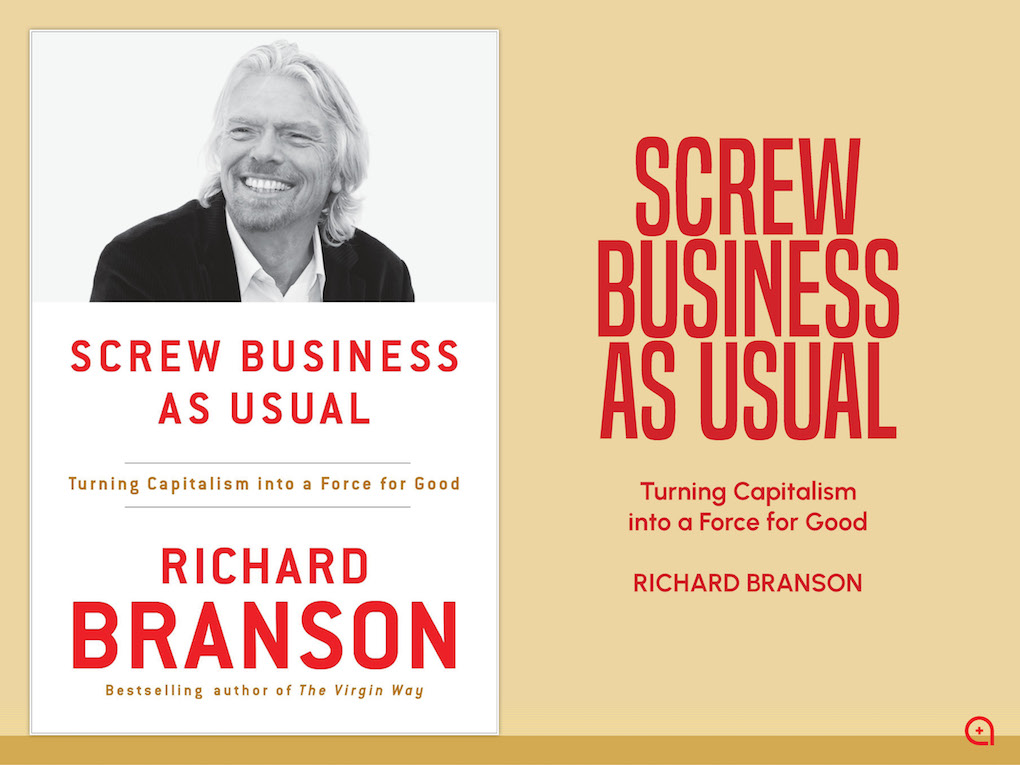
Screw Business as Usual, by Richard Branson
© 2011 • Business • 384 pages • 95% 👍🏿
Elon Musk: “@richardbranson Liked “Screw Business as Usual” a lot. This approach should be taken to heart by all, as it really is the smart move.” – Elon Musk, Tweet, Dec 29, 2011.
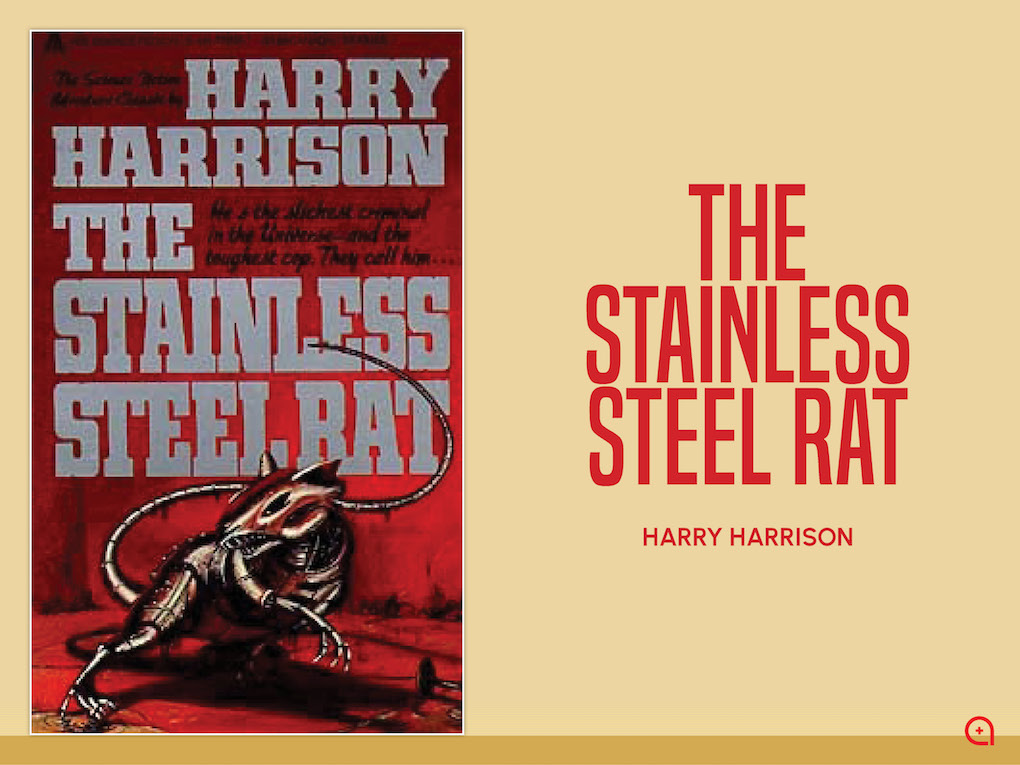
The Stainless Steel Rat, by Harry Harrison
© 1961 • Science fiction • 185 pages • 92% 👍🏿
Lex Fridman: “Due to my journey through Dostoevksy, Camus, Hesse, Kafka, Nietzsche, Palahniuk, Hemingway, Kerouac, Orwell, I’ve never read the sci-fi classics. I’m working to change that. My current list:
- Foundation (Asimov)
- Dune (Herbert)
- Snow Crash (Stephenson)
- Ender’s Game (OSC)” – Lex Fridman, Tweet, 15 September 2020
Elon Musk, replying to @ID_AA_Carmack and @lexfridman: “A bit more obscure, but Starhammer & Stainless Steel Rat” – Elon Musk, Tweet, 16 September 2020
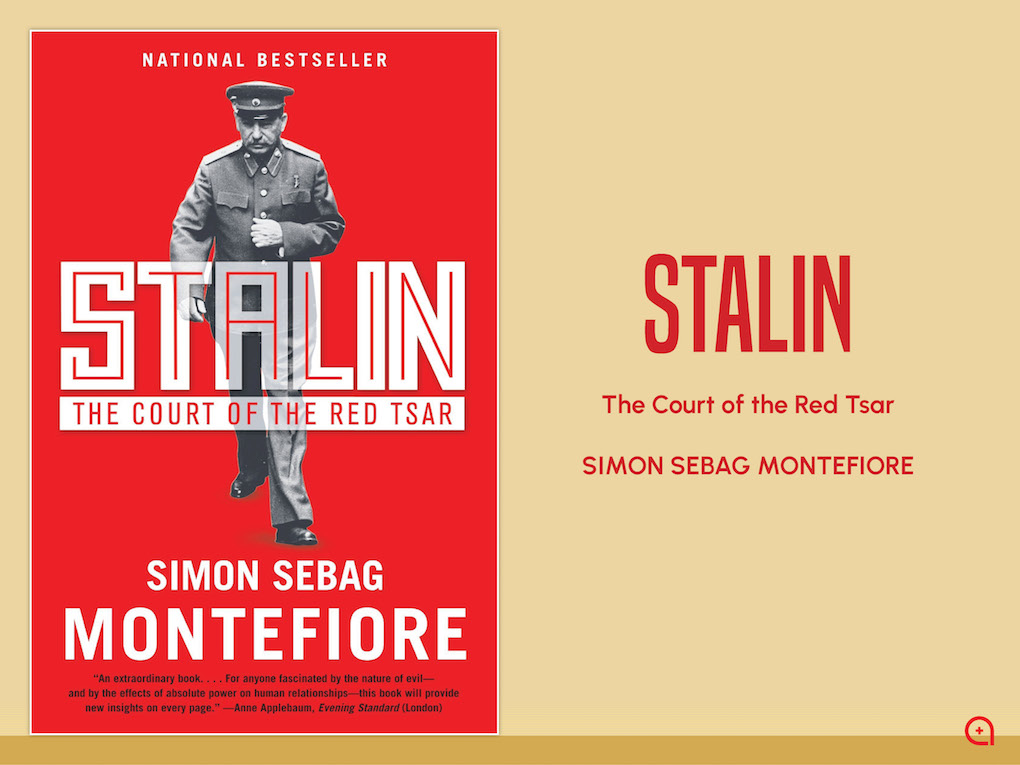
Stalin: The Court of the Red Tsar, by Simon Montefiore
© 2003 • Biography • 384 pages • 85% 👍🏿
Elon Musk: “‘Stalin: Court of the Red Tsar’” was one of the few books so dark I had to stop reading.” – Elon Musk, Tweet, 29 December 2019
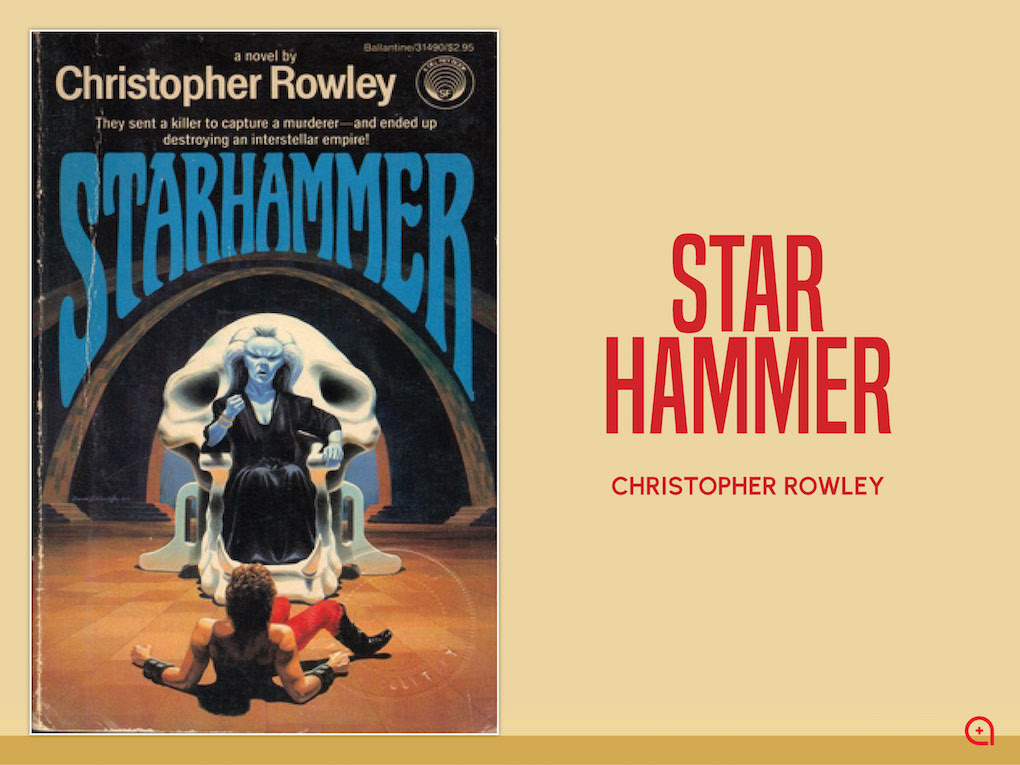
Starhammer, by Christopher B. Rowley
© 1986 • Science fiction • 304 pages • 90% 👍🏿
Lex Fridman: “Due to my journey through Dostoevksy, Camus, Hesse, Kafka, Nietzsche, Palahniuk, Hemingway, Kerouac, Orwell, I’ve never read the sci-fi classics. I’m working to change that. My current list:
- Foundation (Asimov)
- Dune (Herbert)
- Snow Crash (Stephenson)
- Ender’s Game (OSC)” – Lex Fridman, Tweet, 15 September 2020
Elon Musk, Replying to @ID_AA_Carmack and @lexfridman: “A bit more obscure, but Starhammer & Stainless Steel Rat” – Elon Musk, Tweet, 16 September 2020
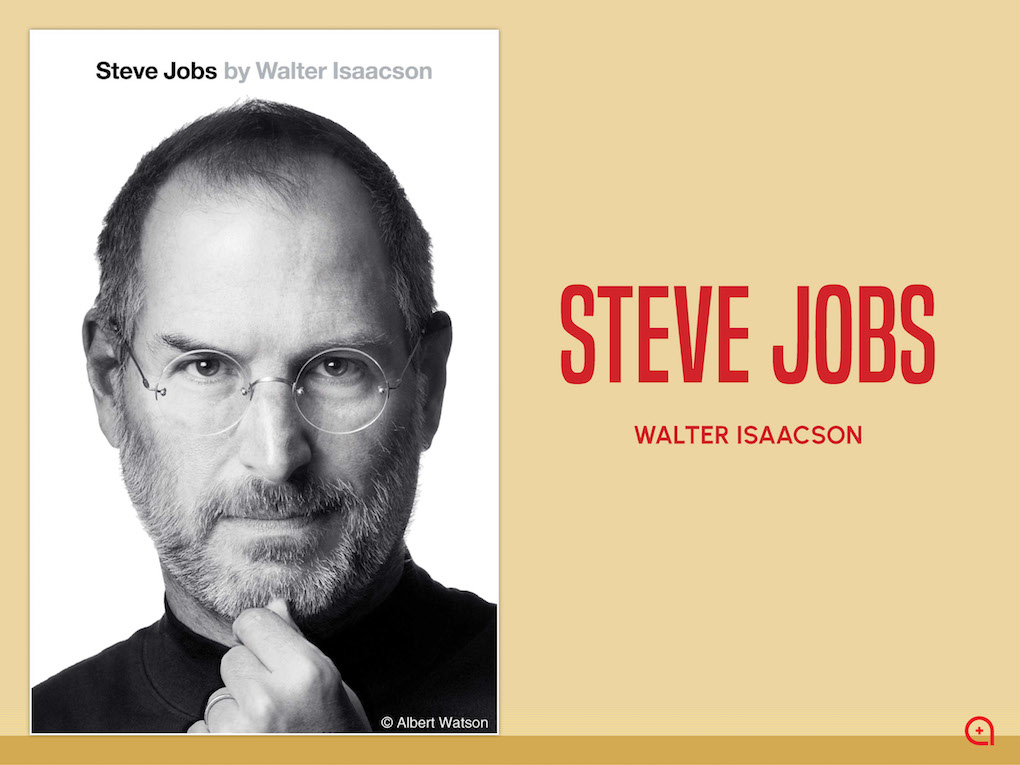
Steve Jobs, by Walter Isaacson
© 2011 • Biography • 656 pages • 95% 👍🏿
“I read Isaacson’s biography of Job’s which I thought was quite interesting.” – CNN Interview, “Reading for Leading,” June 2014
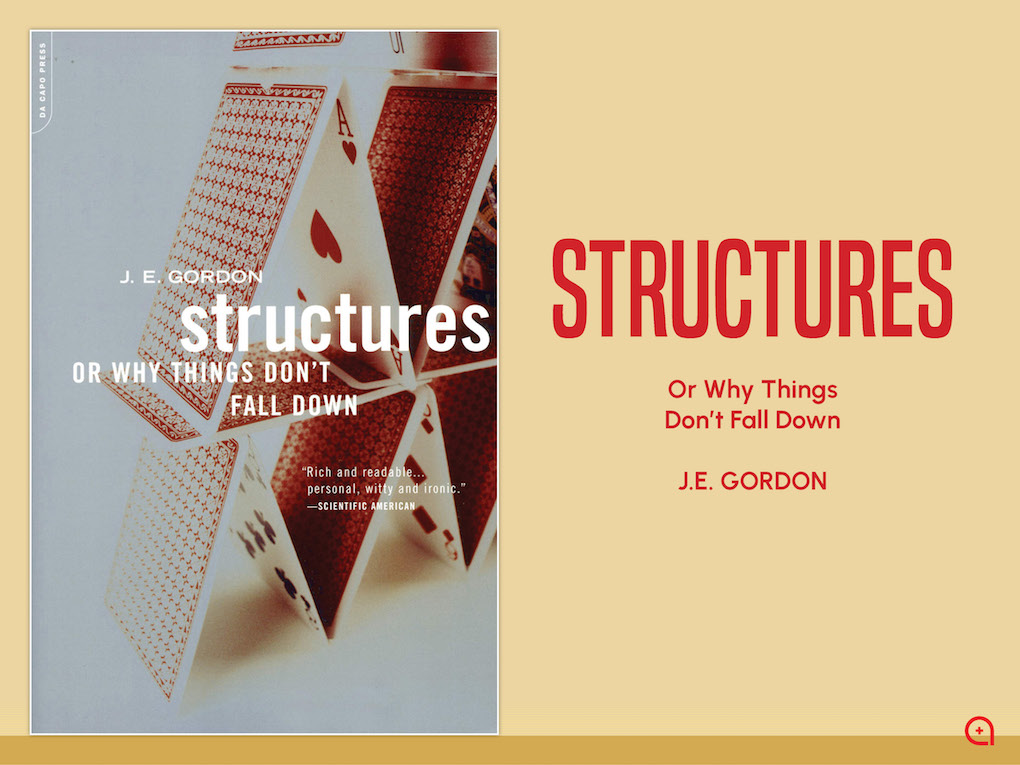
Structures: Or Why Things Don’t Fall Down, by J.E. Gordon
© 2003 • Education and Reference • 424 pages • 95% 👍🏿
Elon Musk: “It is really, really good if you want a primer on structural design.” – KCRW Interview, 19 March 2013
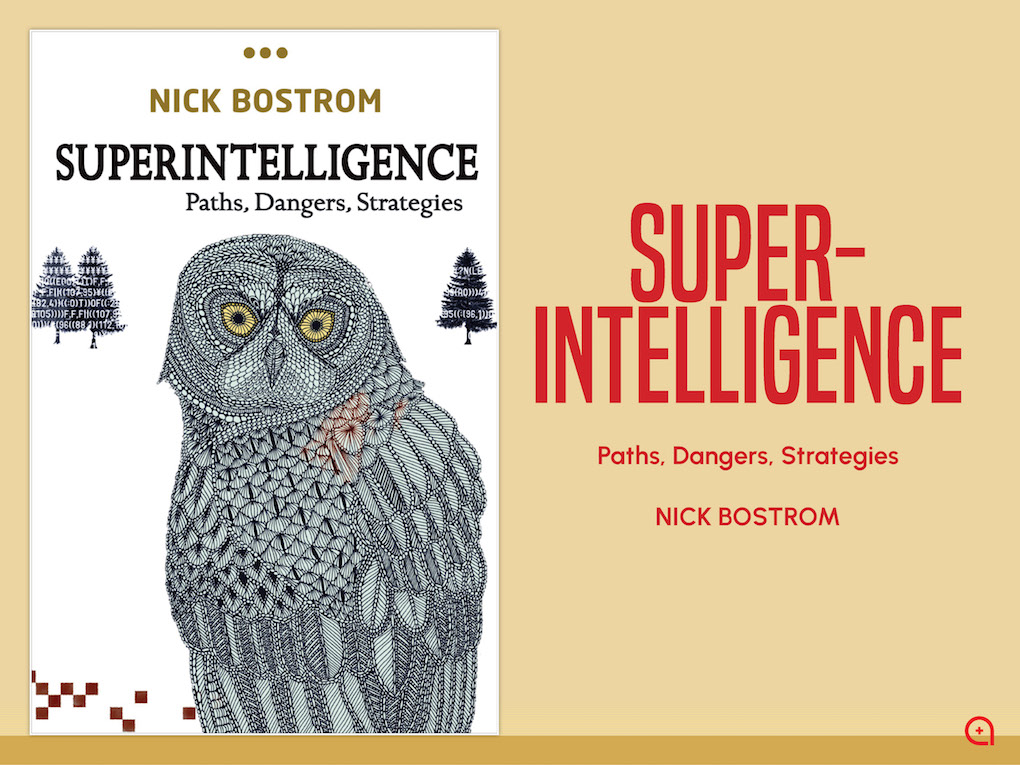
Superintelligence: Paths, Dangers, Strategies, by Nick Bostrom
© 2014 • Thesis • 352 pages • 93% 👍🏿
Elon Musk: “Worth reading Superintelligence by Bostrom. We need to be super careful with AI. Potentially more dangerous than nukes.” – Elon Musk, Tweet, 2 August 2014 [BOOK]
Michael B. Johnson replies to the above tweet, and Elon replies in turn, praising, Daemon, which is a series of two novels by Daniel Suarez.
But first: @justpaulinelol, replying to @elonmusk “You’ve read this right?” [This being a cover shot of Superintelligence]
Elon Musk: “I’m in the credits” – Elon Musk, Tweet, 8 October 2019
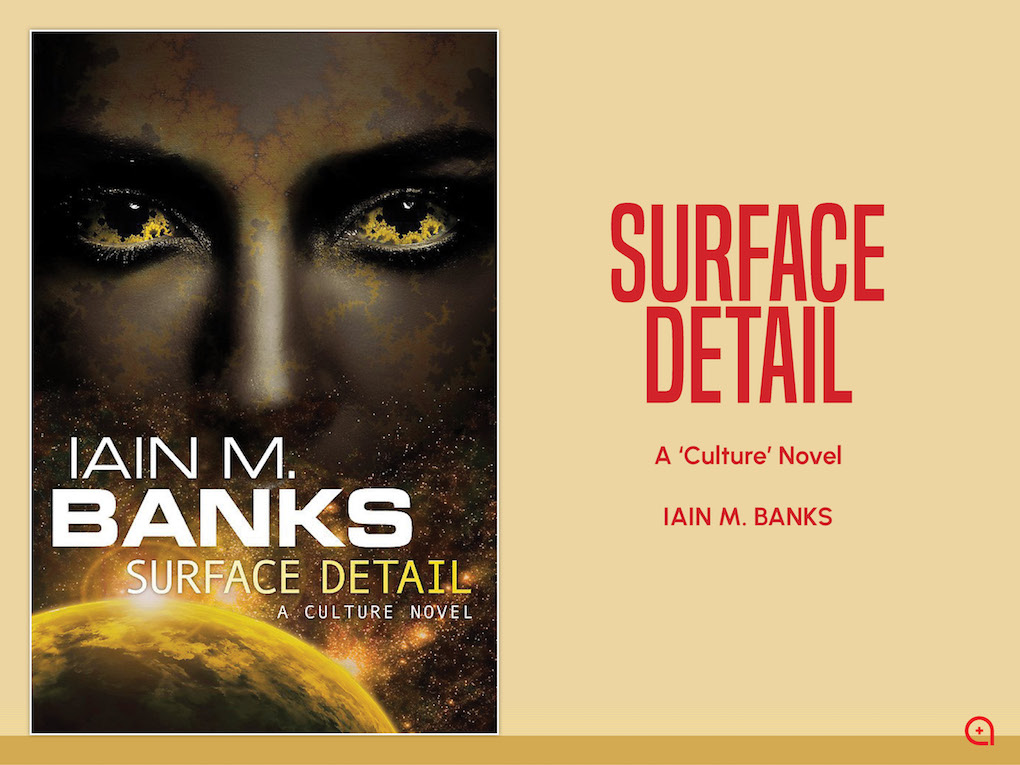
Surface Detail, by Iain M. Banks
© 2010 • Science fiction • 559 pages • 96% 👍🏿
Fredo De Smet: Replying to @elonmusk, “what Banks books do you recommend?”
Elon Musk: “All of them, especially Surface Detail.” – Elon Musk, Tweet, 16 June 2018
[See The Culture series above.]
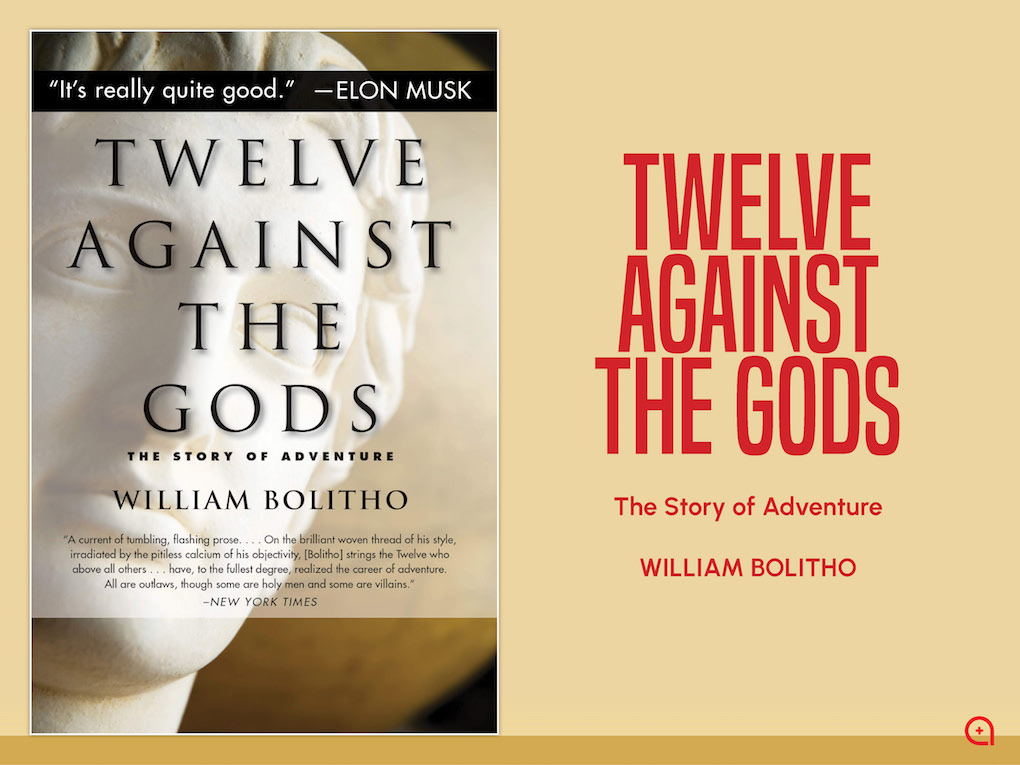
Twelve Against the Gods: The Story of Adventure, by South African journalist William Bolitho
© 1929 • Biography • 247 pages • 92% 👍🏿
“So what book is Musk into now? Bloomberg writer Tom Radall recently asked him: ‘Actually, I’m reading a book called Twelve Against the Gods, by [William] Bolitho,’ Musk said. ‘It’s really quite good.’ – Bloomberg via Fortune, 28 July 2016
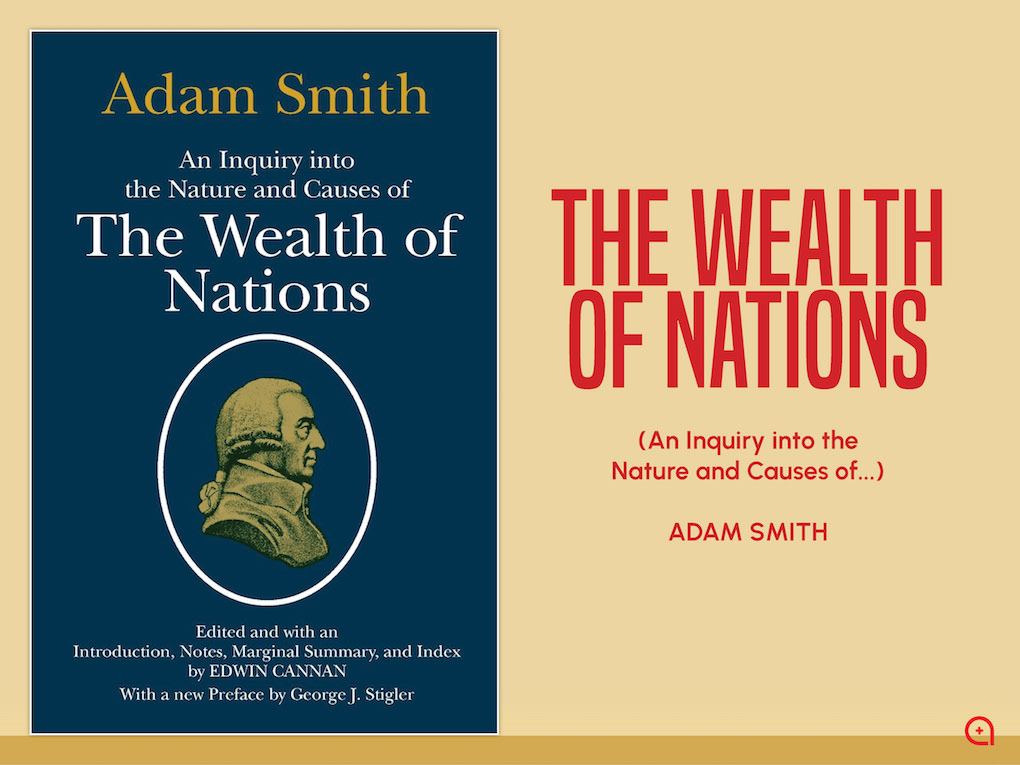
The Wealth of Nations, by Adam Smith
© 1776 • Economics • 950 pages • 87% 👍🏿
Elon Musk: “Read Das Kapital when I was 14, incl cross-checking English translation of original German. Adam Smith FTW obv. Ironically, future automation will naturally lead to greater equality of consumption. Monopolies are true enemy of people. Competing to serve is good.” – Elon Musk, Tweet, 16 June 2018
What We Owe The Future, by William MacAskill
It’s unclear whether Elon Musk actually read What We Owe The Future, by William MacAskill, but he did Tweet about it in response to the author’s statement that the book “makes the case for longtermism, the view that positively affecting the long-run future is a key moral priority of our time.”
Musk replied “Worth reading. This is a close match for my philosophy.”
Given the “worth reading,” maybe Musk did read it?
Worth reading. This is a close match for my philosophy. https://t.co/cWEM6QBobY
— Elon Musk (@elonmusk) August 2, 2022
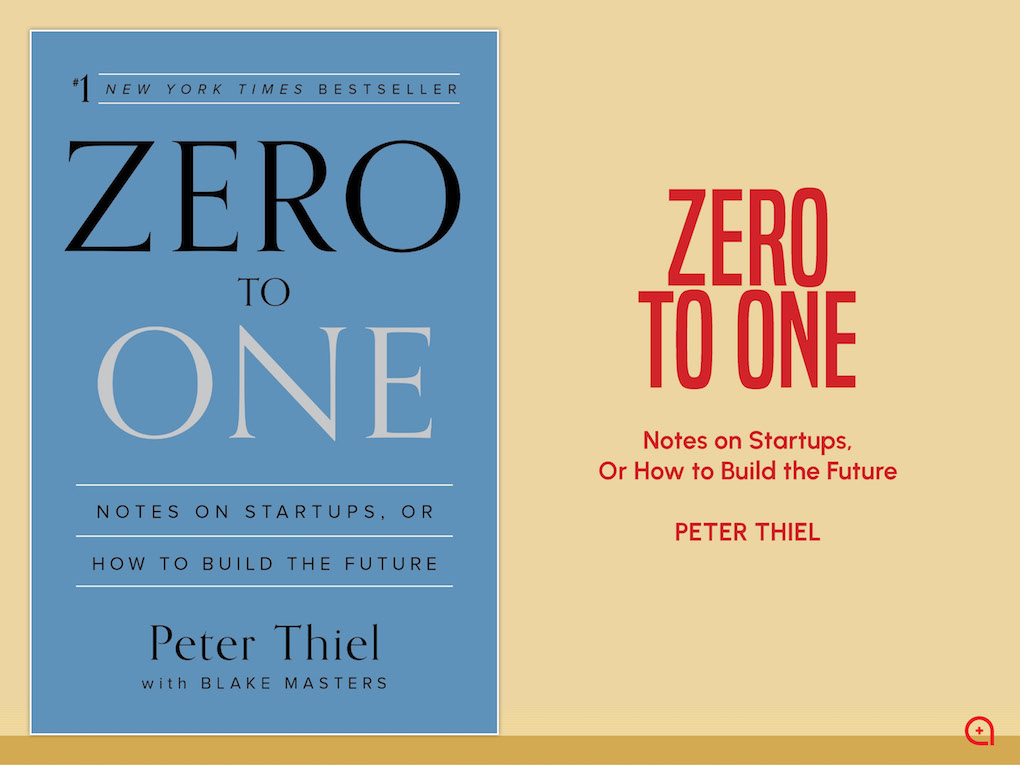
Zero to One: Notes on Startups, or How to Build the Future, by Peter Thiel
© 2014 • Business • 224 pages • 93% 👍🏿
Elon Musk: “Peter Thiel has built multiple breakthrough companies, and Zero to One shows how.” – Elon Musk, dustjacket blurb on Zero to One.


